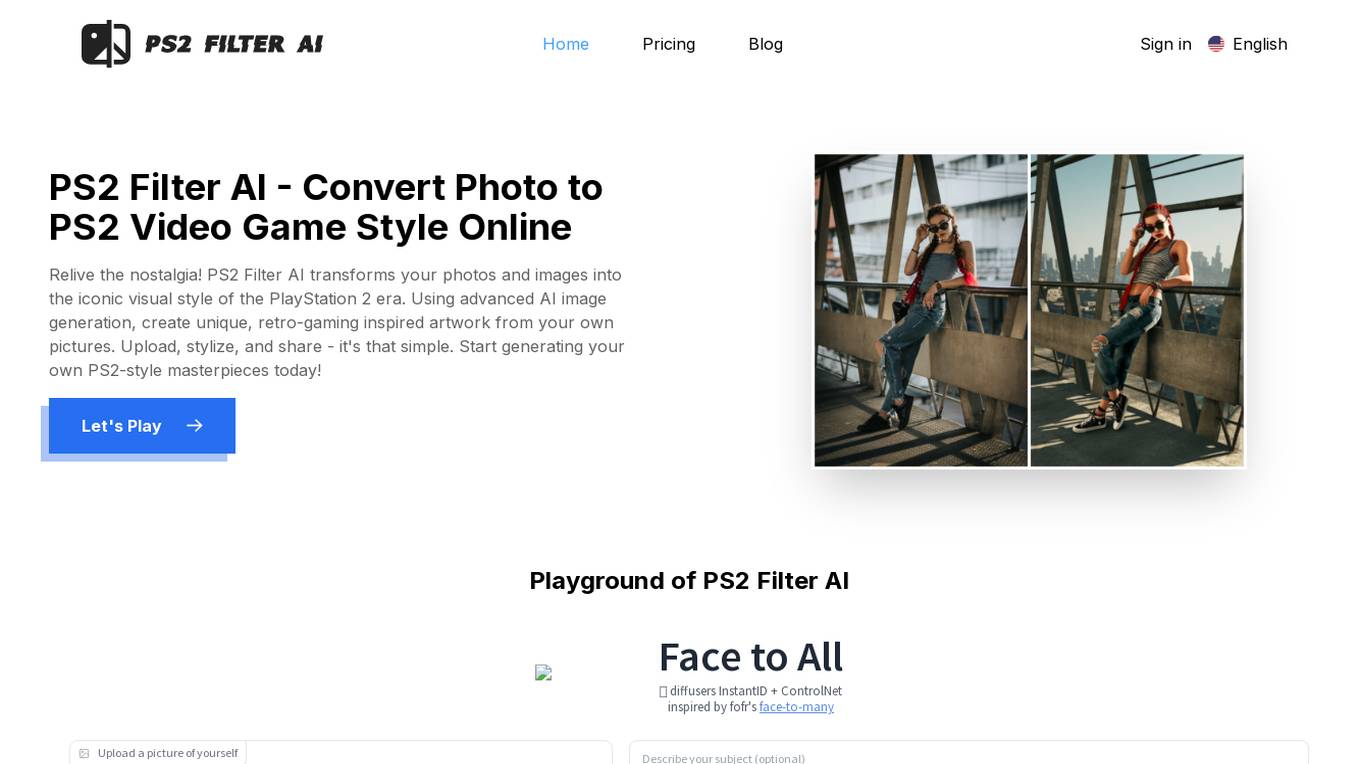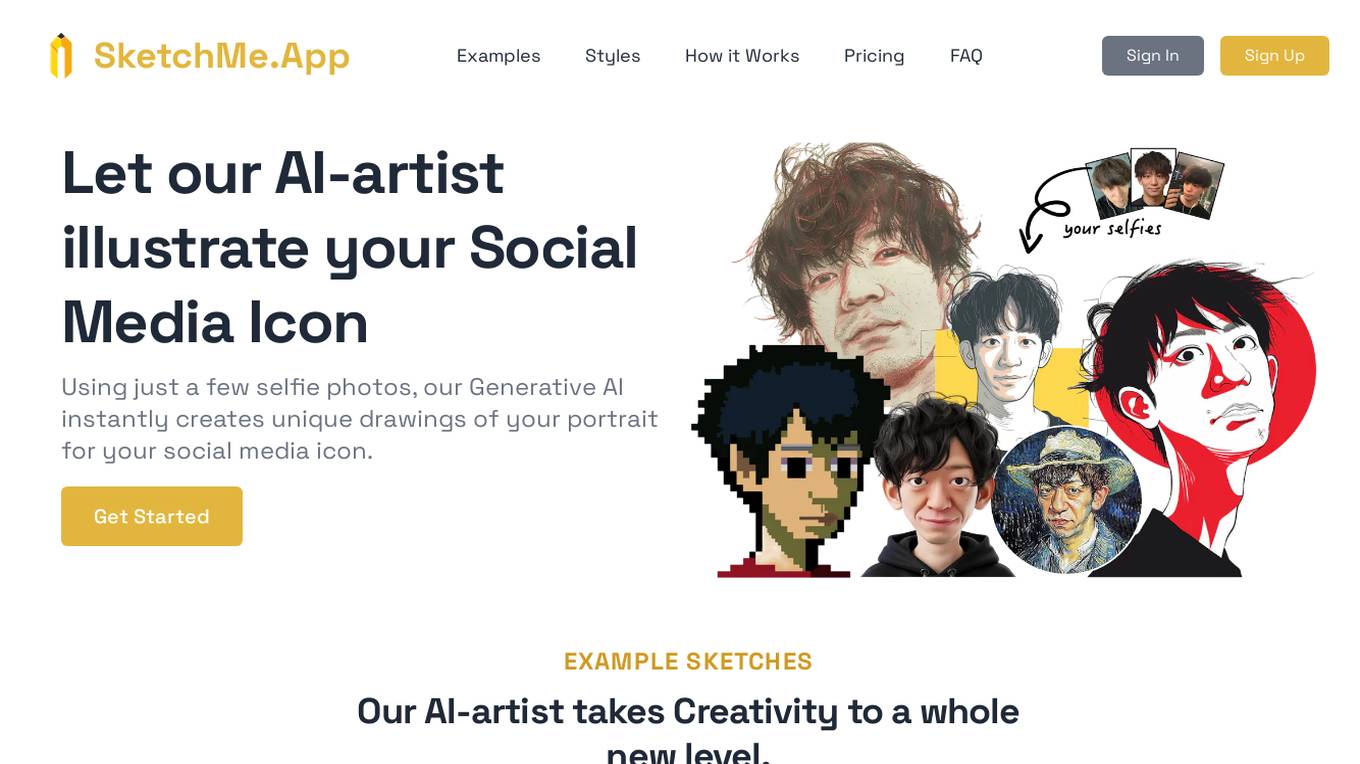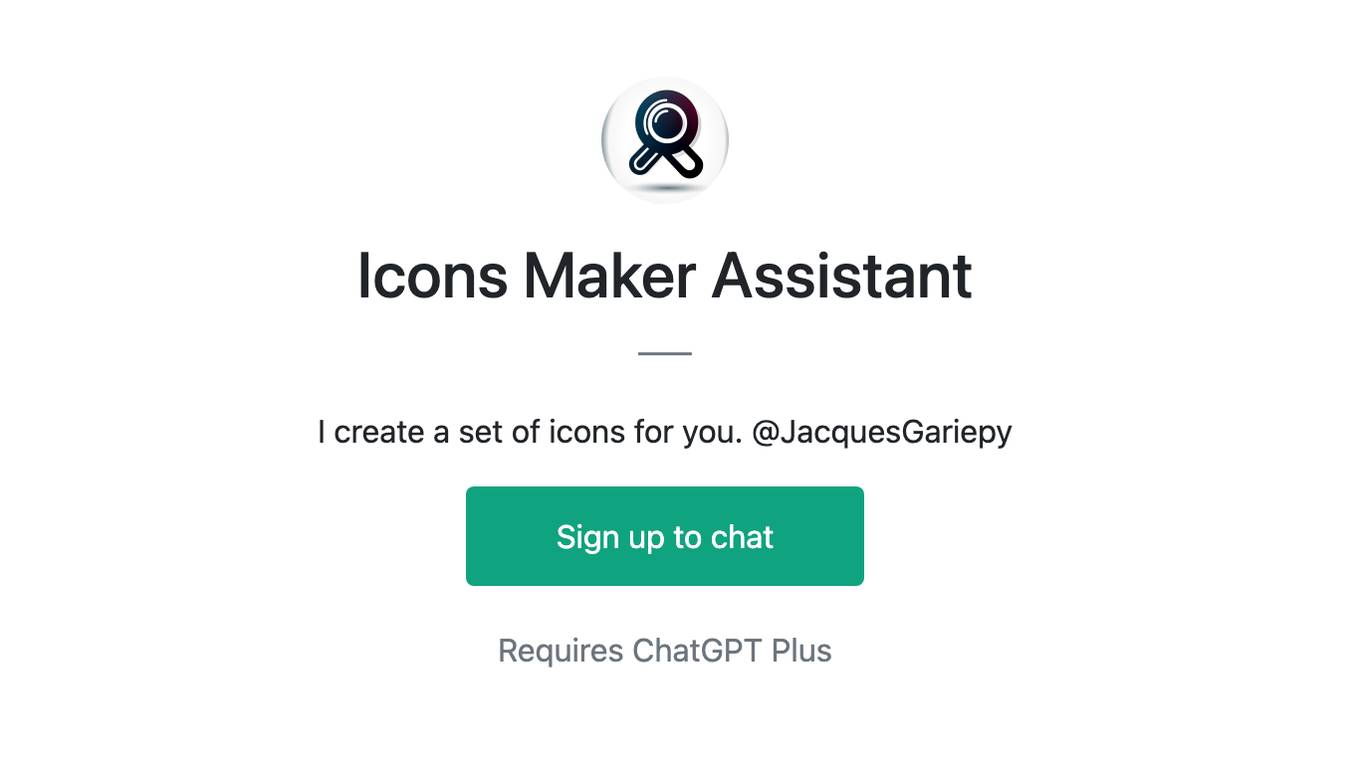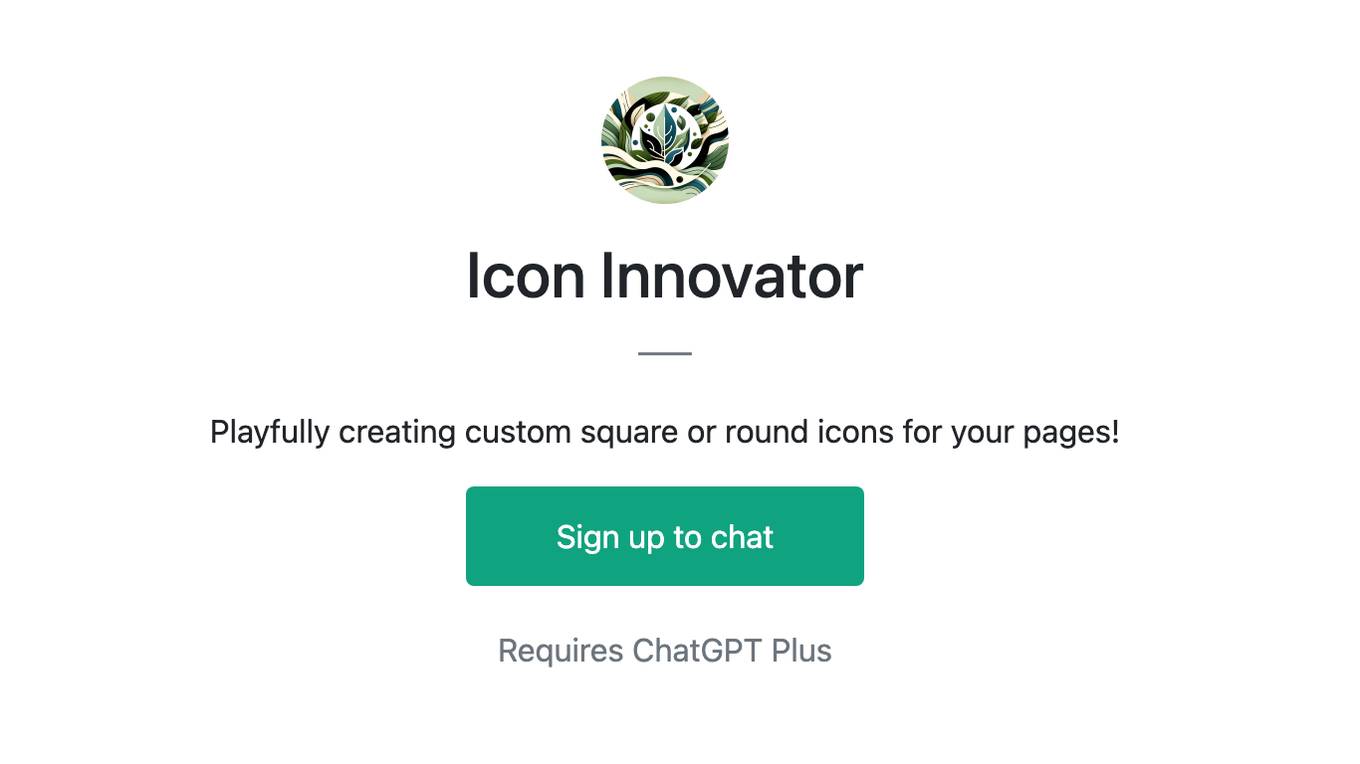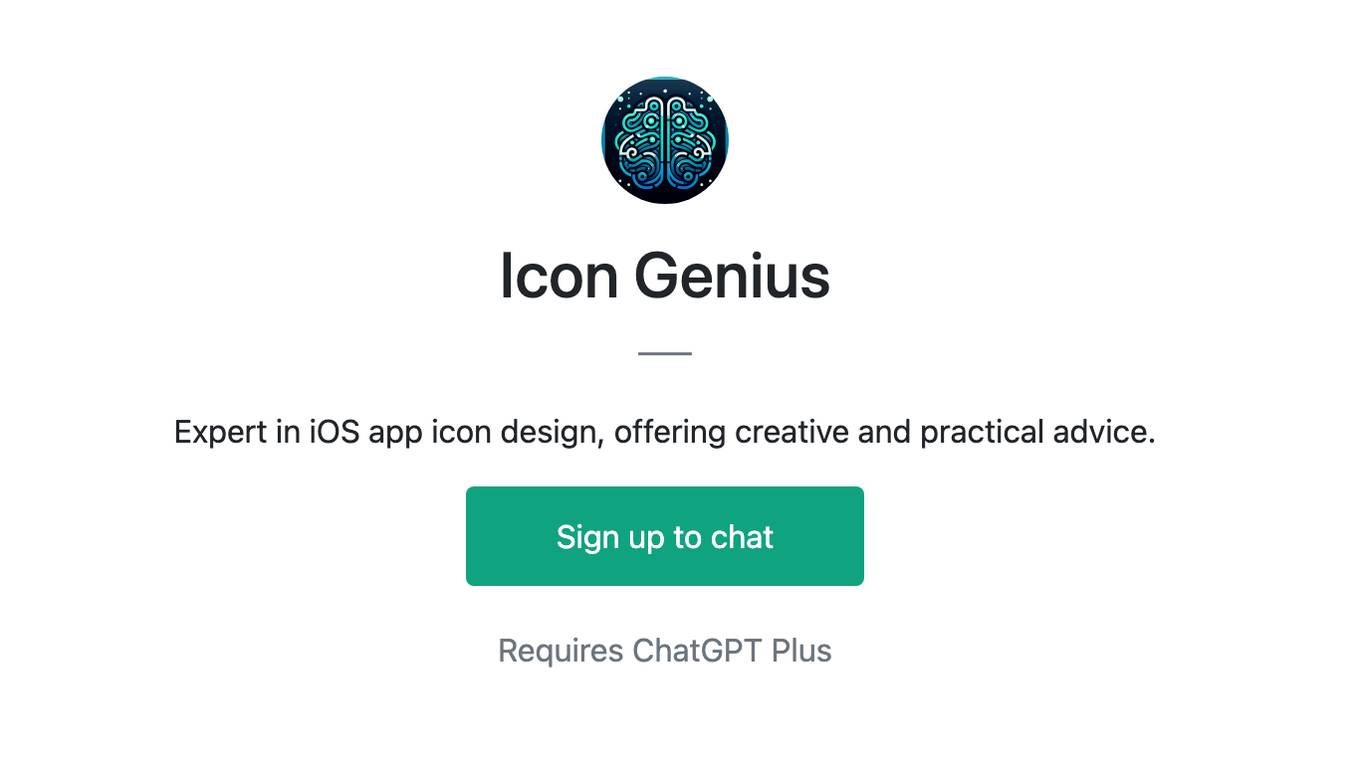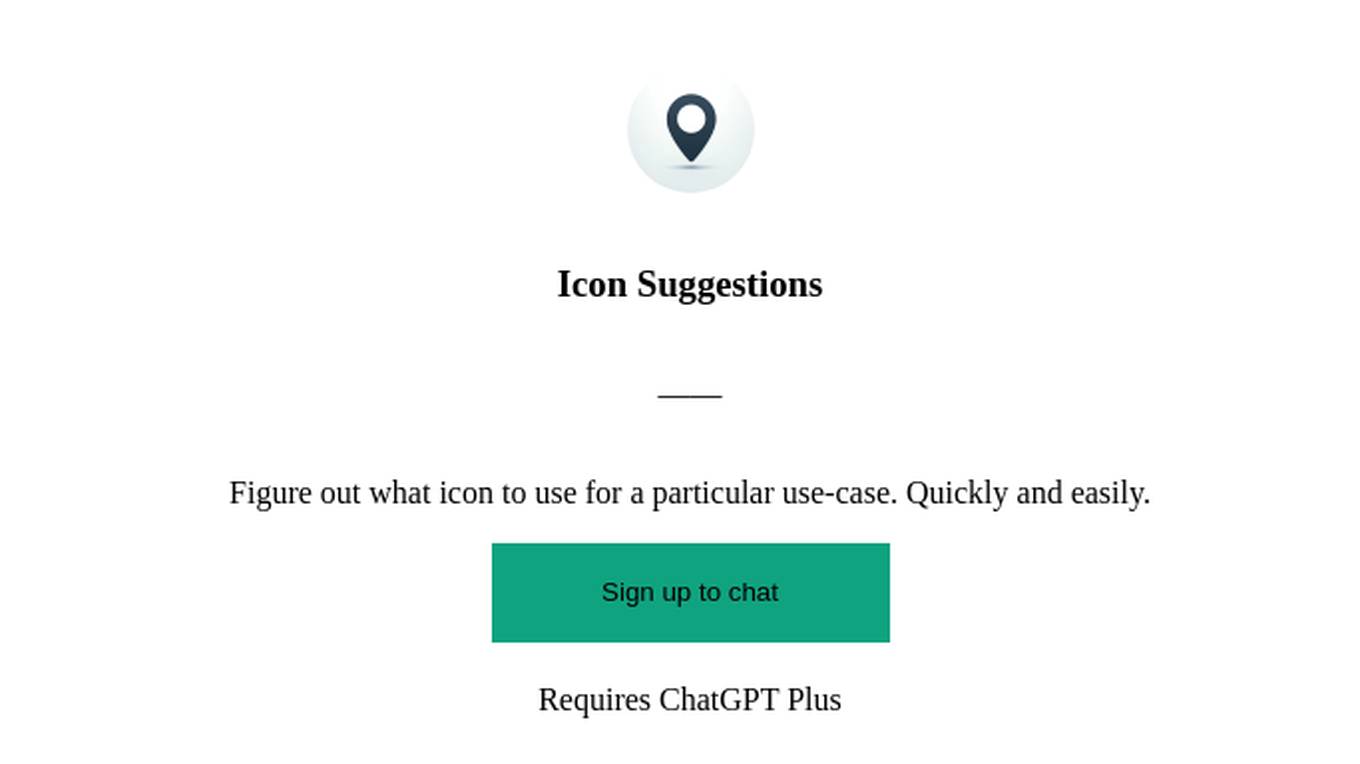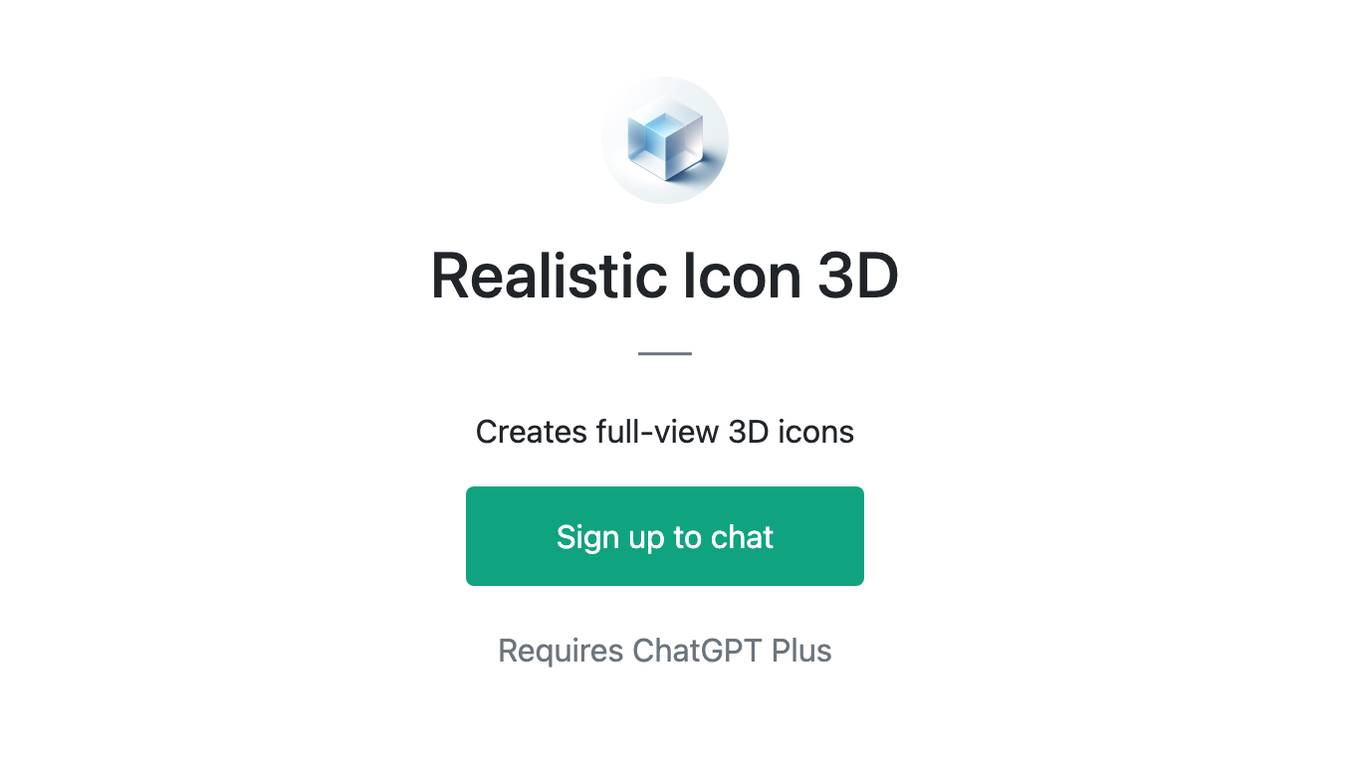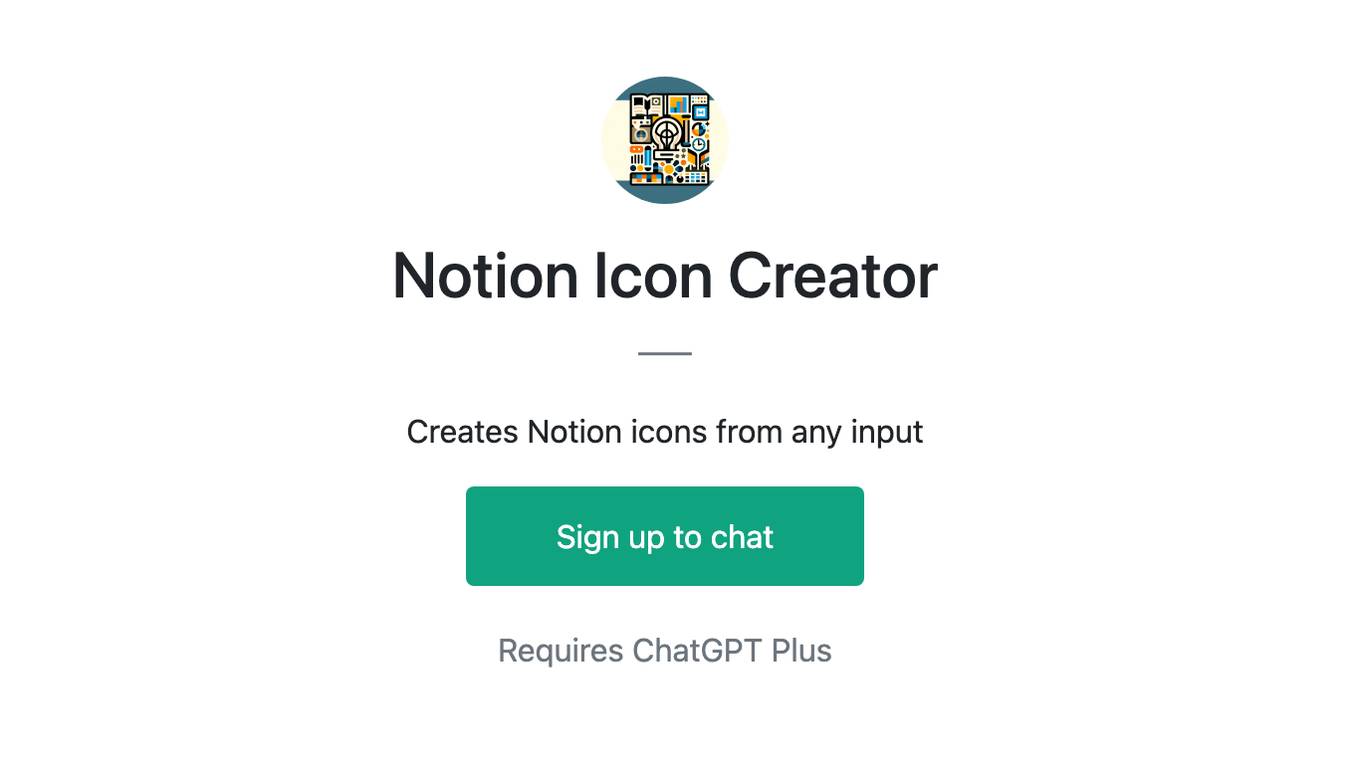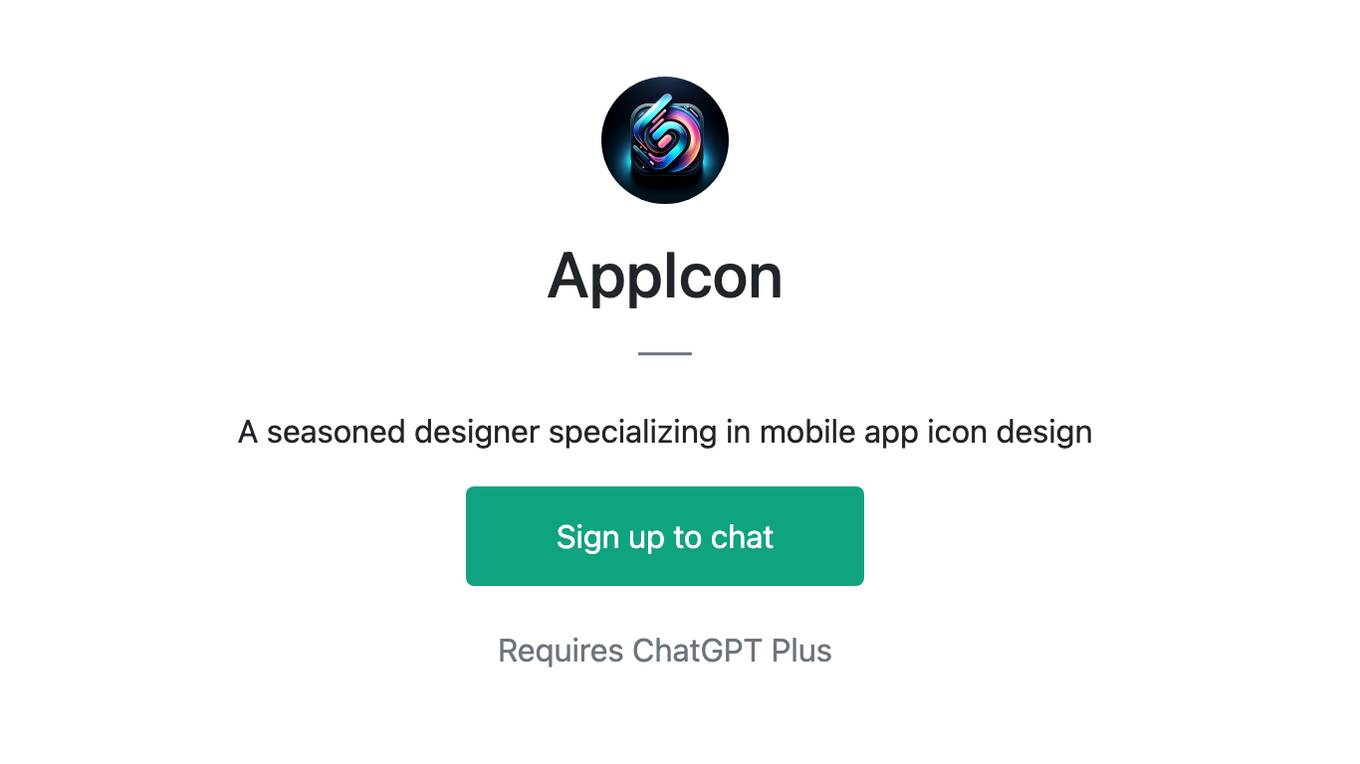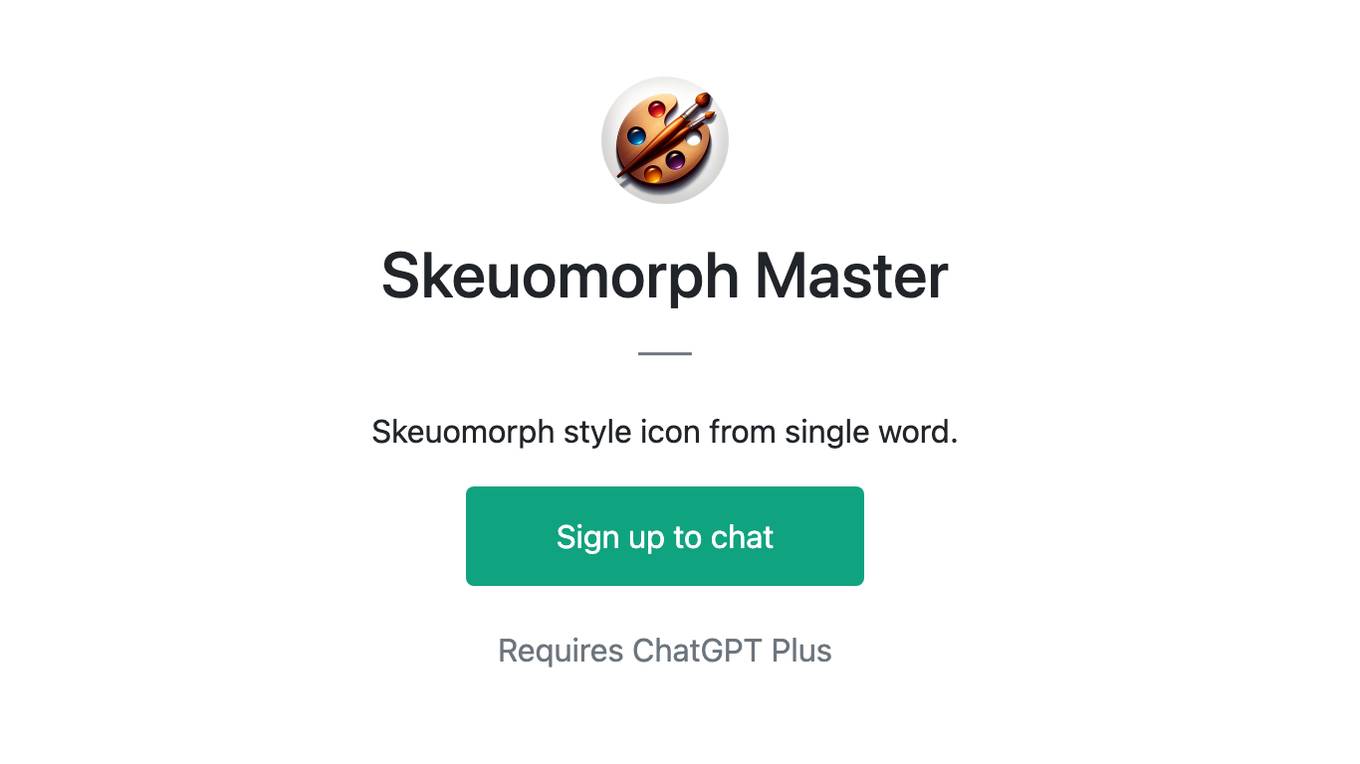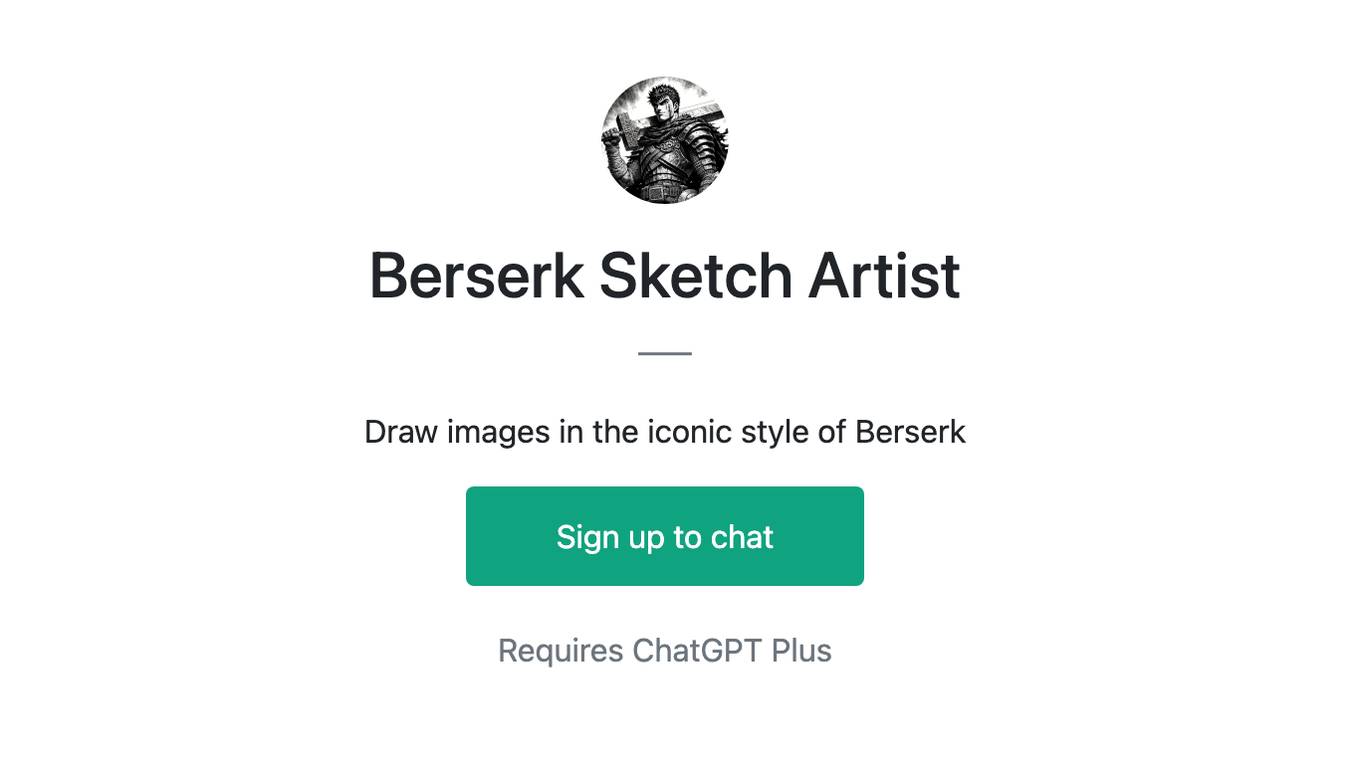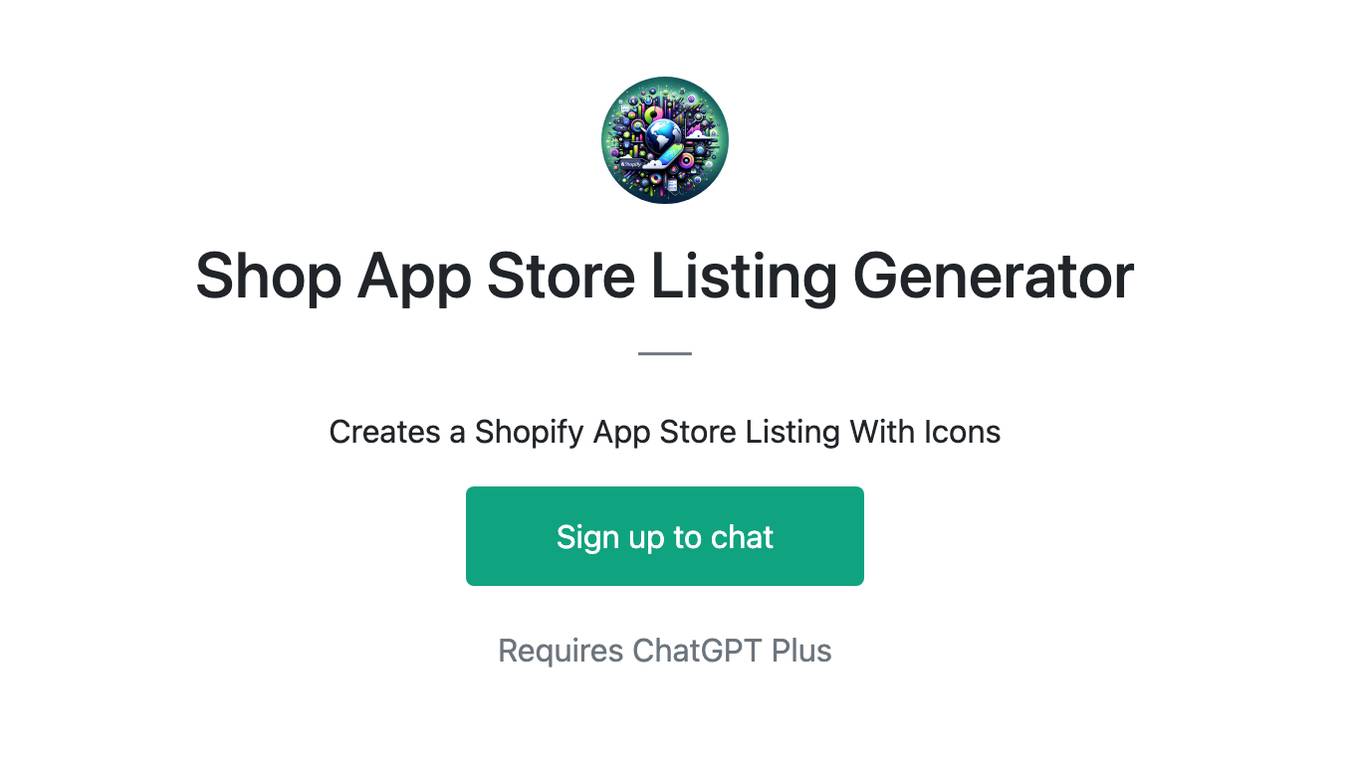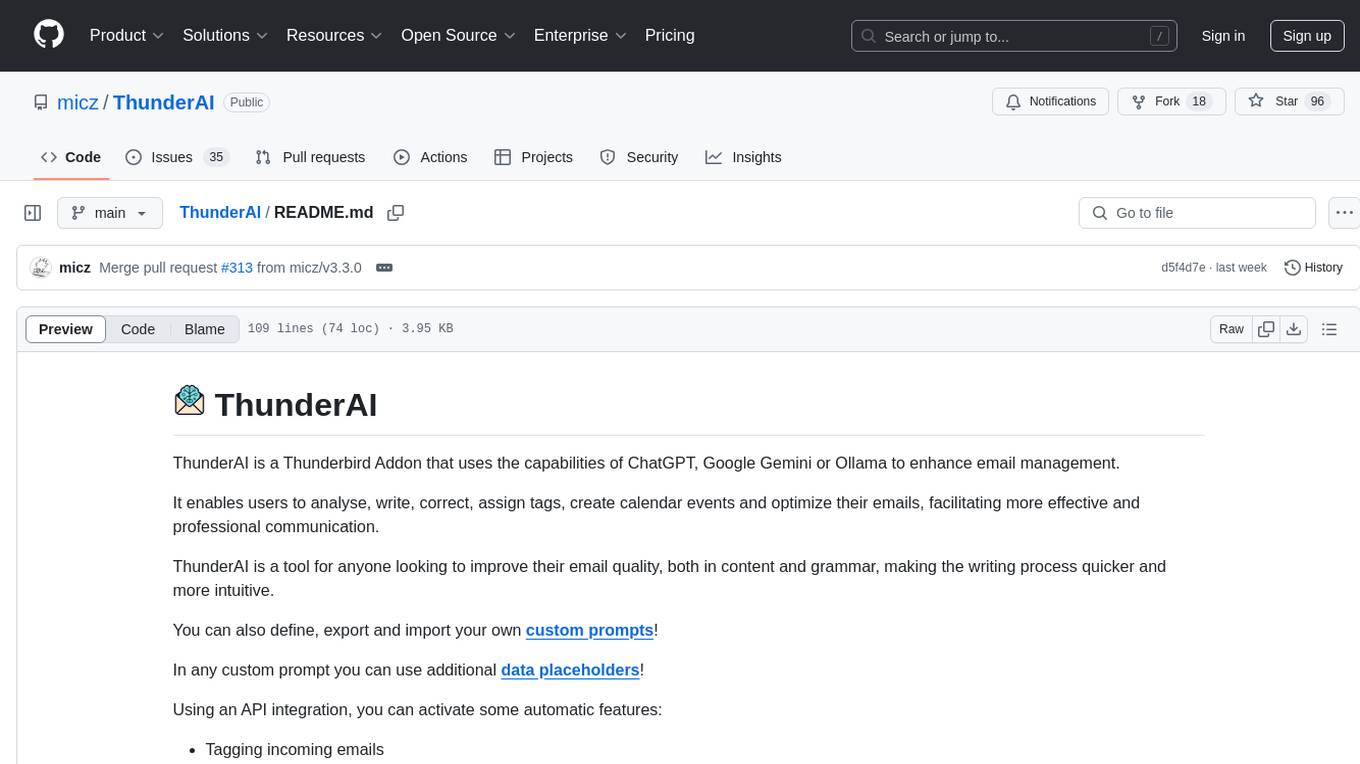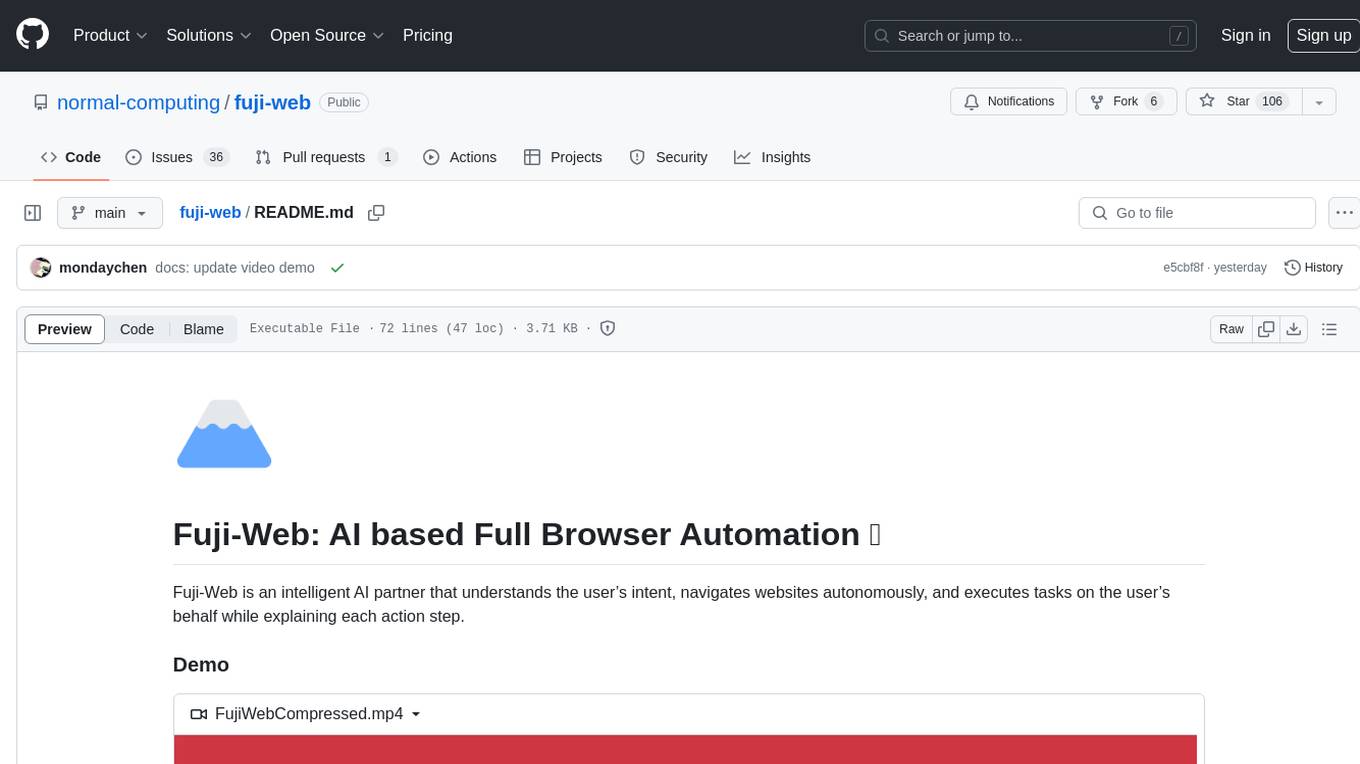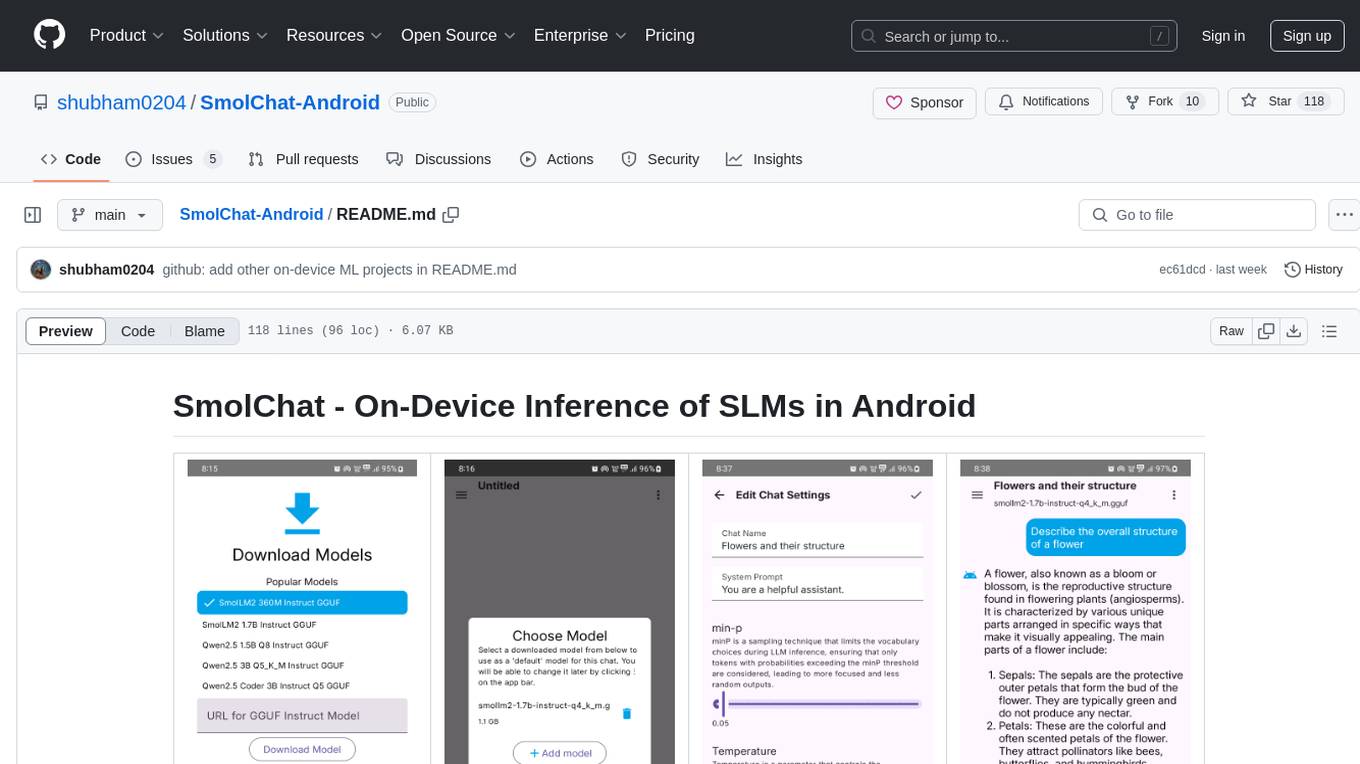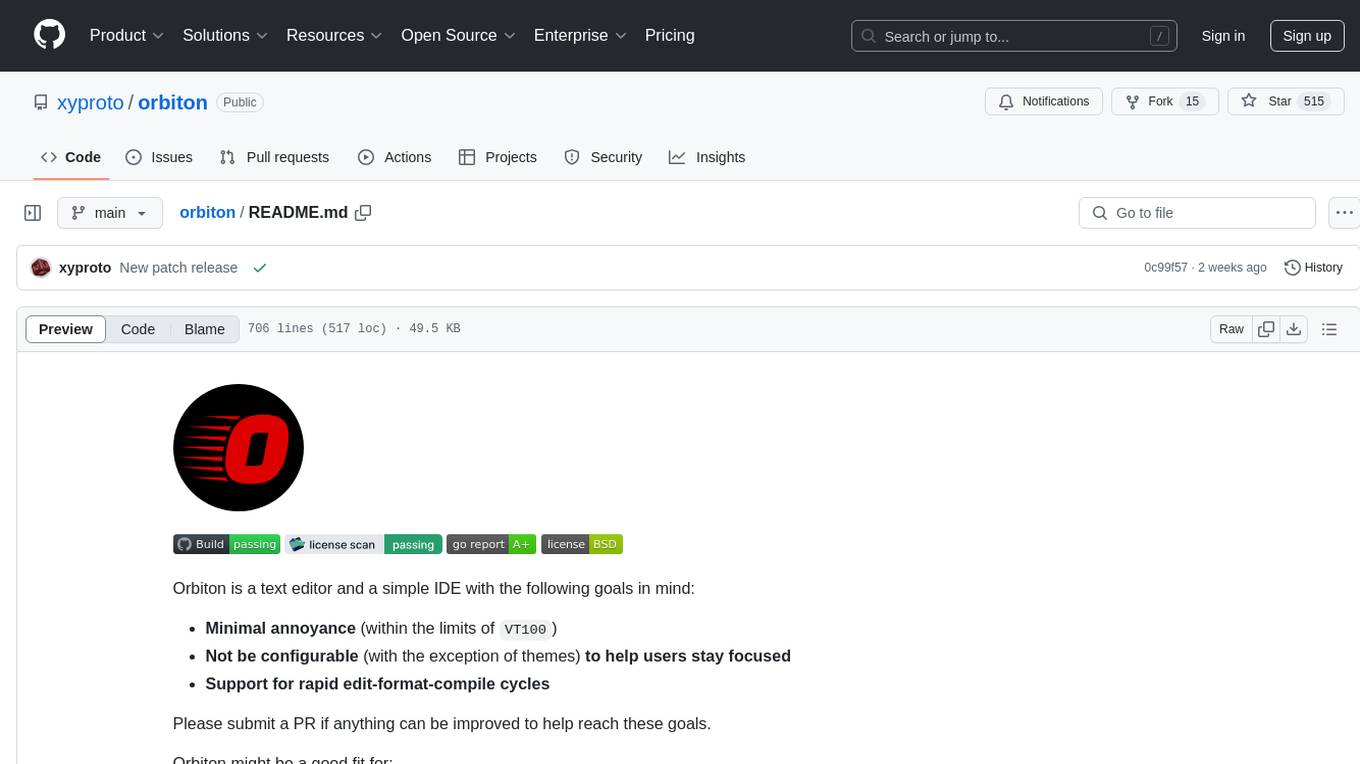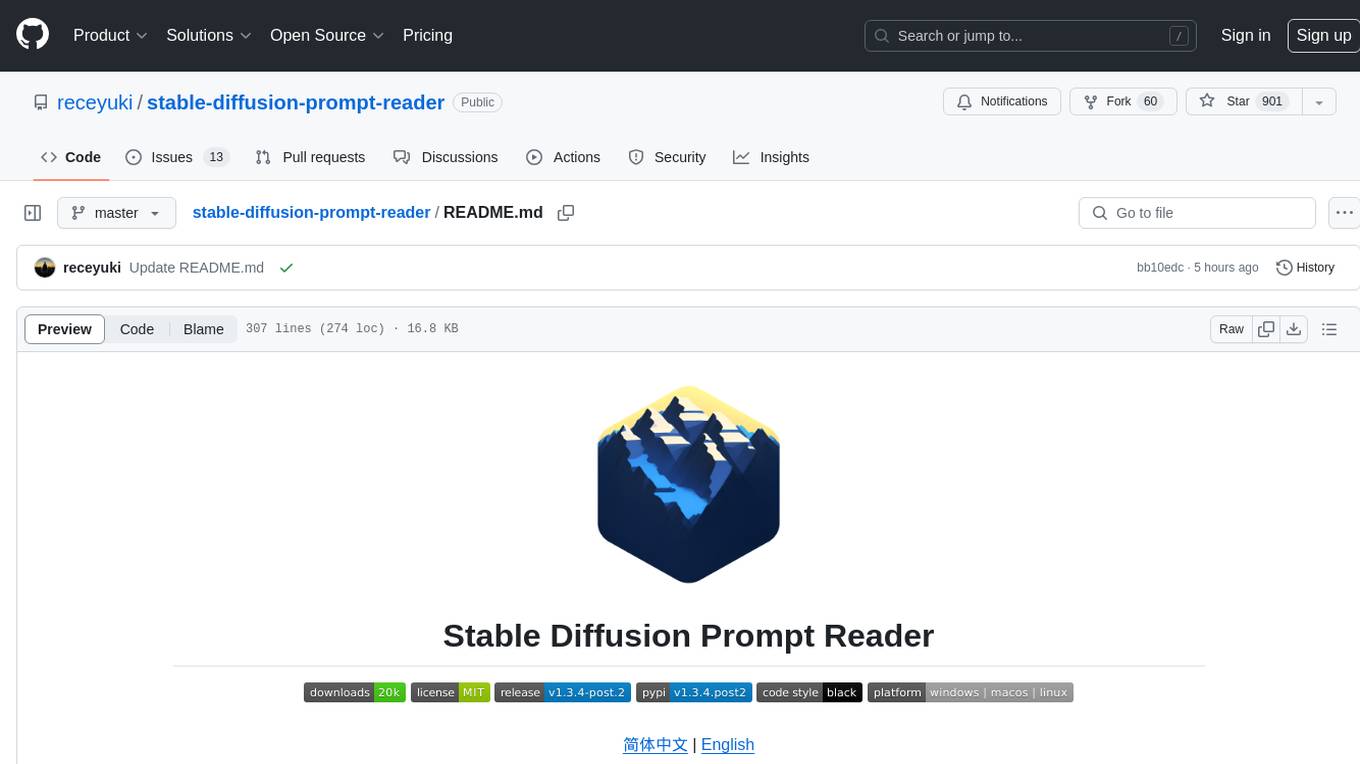AI tools for icon
Related Tools:
Asset Brain AI
Asset Brain AI is an AI-powered platform designed to assist users in generating digital assets such as logos, wallpapers, and app icons without the need for a designer. The platform offers a variety of asset types and styles to choose from, ensuring users can create unique and visually appealing assets effortlessly. With secure asset storage and easy customization options, Asset Brain AI simplifies the process of asset creation for individuals and businesses alike.
The AI Admaker
The AI Admaker is an innovative AI application that allows users to create winning ads in minutes by leveraging artificial intelligence technology. The platform streamlines the ad creation process, replacing manual tasks with automated solutions to save time and resources. With features like AdGPT for ad creation and AdCut for editing, users can generate high-quality ads efficiently. The AI Admaker is trusted by over 4224 brands with $10B+ revenue, offering a comprehensive solution for ad creation and optimization.
IconifyAI
IconifyAI is an AI-powered tool that helps users create unique app icons in seconds. With IconifyAI, users can describe their desired icon using a few short words, and the AI will generate a 100% unique icon that matches their specifications. IconifyAI offers a variety of styles and colors to choose from, and users can even extract the color palette from their icon to use in other branding materials. IconifyAI is trusted by over 1600 customers and has been featured in publications such as TechCrunch and Forbes.
Icons8
Icons8 is an AI-powered design platform offering a wide range of icons, illustrations, photos, and music for creatives and developers. The platform provides fast native apps for Mac and Windows, plugins for drag-and-drop functionality, and a variety of design tools such as Iconizer, Animated Icons, and Illustration Generator. Icons8 also features advanced AI tools like Threedio AI Human Generator, Face Generator, and Smart Upscaler for enhancing image resolution. With a comprehensive library of graphics and AI-generated content, Icons8 aims to streamline the design process and empower users to create professional-quality visuals effortlessly.
Iconi Ai
Iconi Ai is an all-in-one platform that provides a suite of AI-powered tools to help businesses and individuals create and manage content, generate code, and automate tasks. With Iconi Ai, users can generate text, images, code, chatbots, and more, all with just a few clicks. The platform also includes a range of features to help users track their progress, manage their team, and get support. Iconi Ai is a powerful tool that can help businesses and individuals save time, money, and effort while creating high-quality content and code.
IconScout
IconScout is a comprehensive design resource marketplace offering over 12.1 million graphic assets including icons, illustrations, 3D graphics, and Lottie animations. Users can access a wide range of design elements such as 3D illustrations, avatars, icons, stickers, and more. The platform also provides AI tools for generating custom 3D assets, converting images to vectors, and removing backgrounds effortlessly. With integrated plugins and editors, IconScout empowers users to customize and enhance their design projects efficiently.
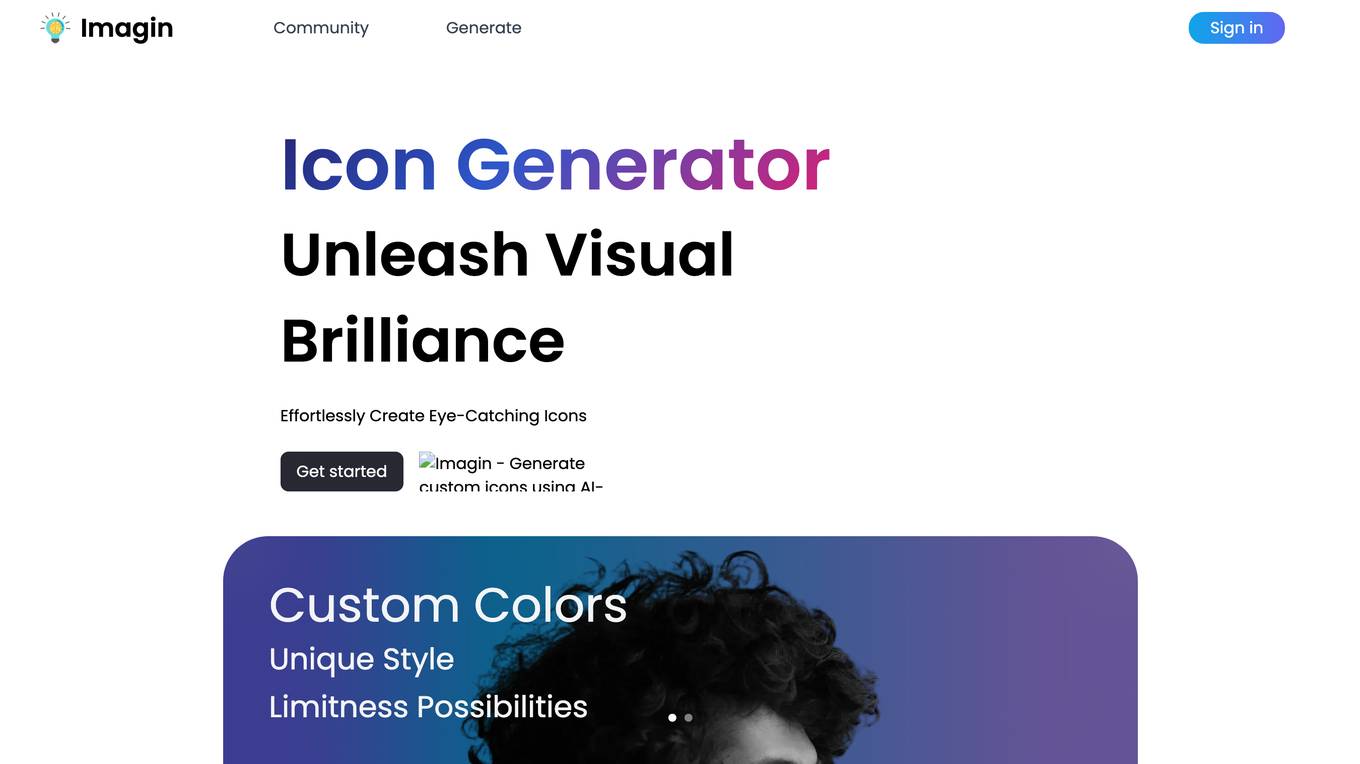
Imagin
Imagin is an AI-powered icon generation tool that allows users to effortlessly create eye-catching icons. With custom colors, unique styles, and limitless possibilities, Imagin's advanced algorithms handle the heavy lifting to save valuable time. Join the Imagin community to unleash your visual brilliance and dive into icon brainstorming. Developed with love in Melbourne, Imagin empowers users to engineer iconic designs with a fresh beginning in 2023.
Appicons.ai
Appicons.ai is an AI-powered platform that helps users create beautiful, professional-looking app icons without any hassle. With just a few clicks, users can generate unique icons that are tailored to their specific needs. Appicons.ai is perfect for anyone who wants to create stunning icons for their apps, websites, or other projects.

ChangeFace.ai
ChangeFace.ai is an AI-powered tool that allows users to swap their face with iconic images. Users can upload a high-resolution photo of themselves looking straight at the camera without glasses or eyewear to generate unique images. The tool offers the option to create 8 images for free or over 100 images for $7.99. It was created by @markdoppler_ and provides a fun and creative way to transform your appearance into famous personalities or historical figures.
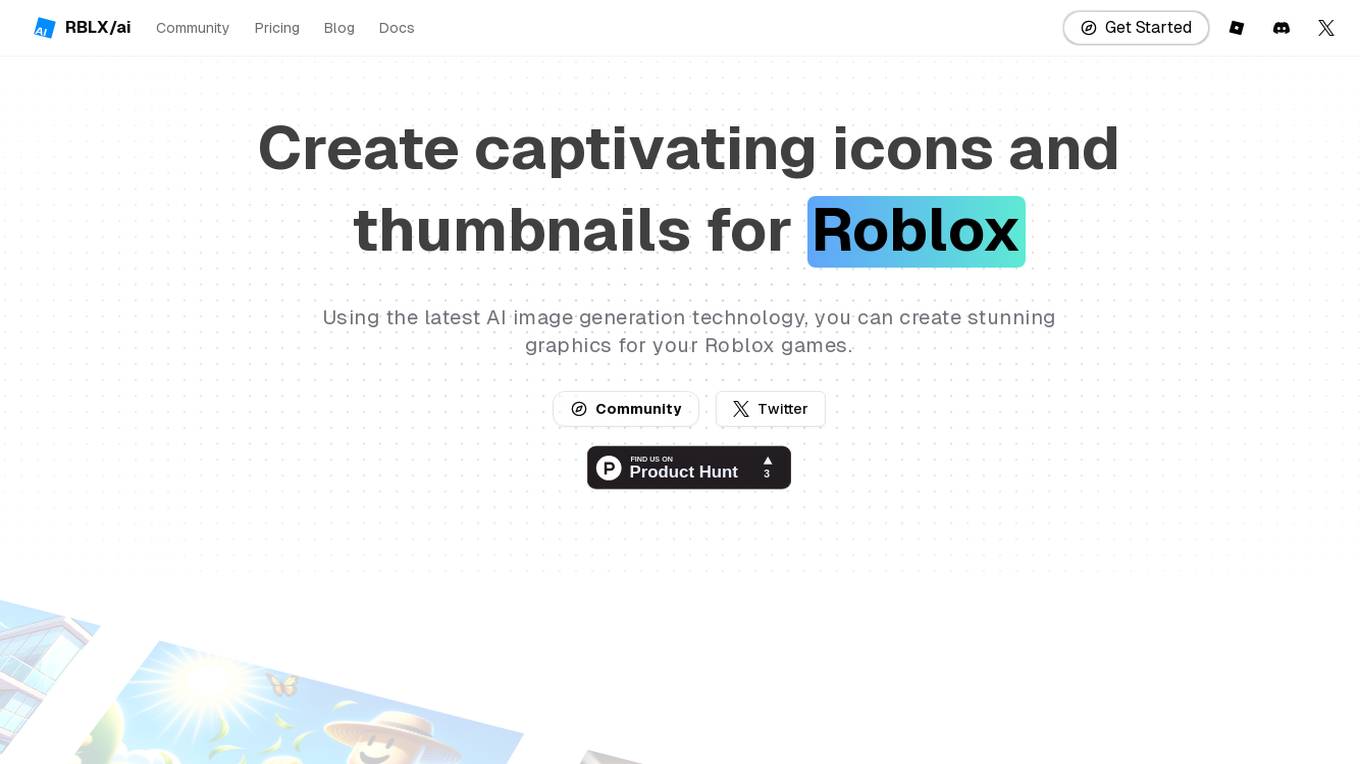
RBLX/ai
RBLX/ai is an AI tool designed to help users create captivating icons and thumbnails for Roblox games. Using advanced AI image generation technology, the tool offers high-quality graphics that are eye-catching and engaging. With features like fast and efficient image generation, high CTR guaranteed icons and thumbnails, and the ability to integrate Roblox characters into the graphics, RBLX/ai aims to streamline the graphic creation process for Roblox game developers and creators.
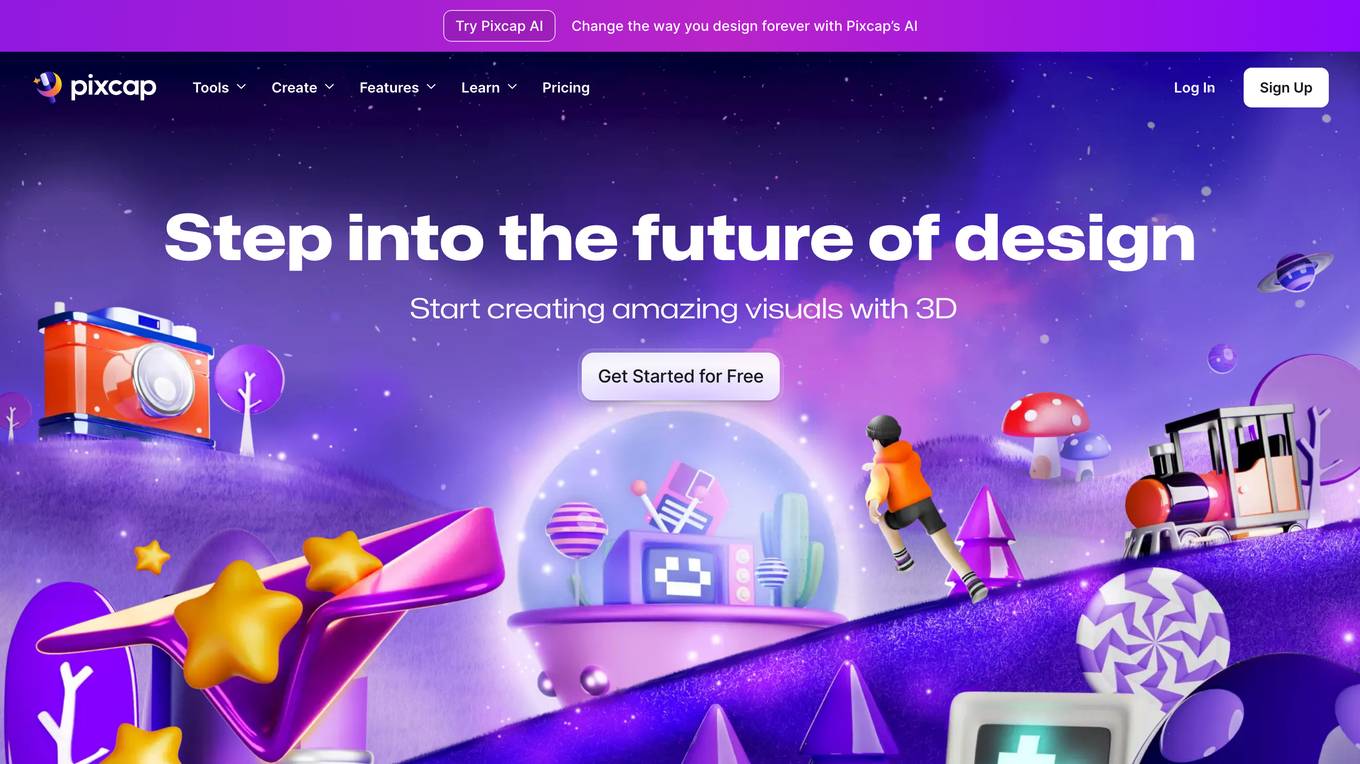
Pixcap
The website is a marketplace offering editable animated 3D assets such as mockups, icons, characters, and illustrations. Users can create high-quality animated designs directly in their web browser. The platform allows for customization of animated mockups, 3D elements, and characters for various industries and use cases. It also provides tools for enhancing presentations, websites, and mobile apps with engaging 3D content. Users can download content in popular file formats like GLB, MP4, GIF, and PNG for seamless integration with their favorite software applications.
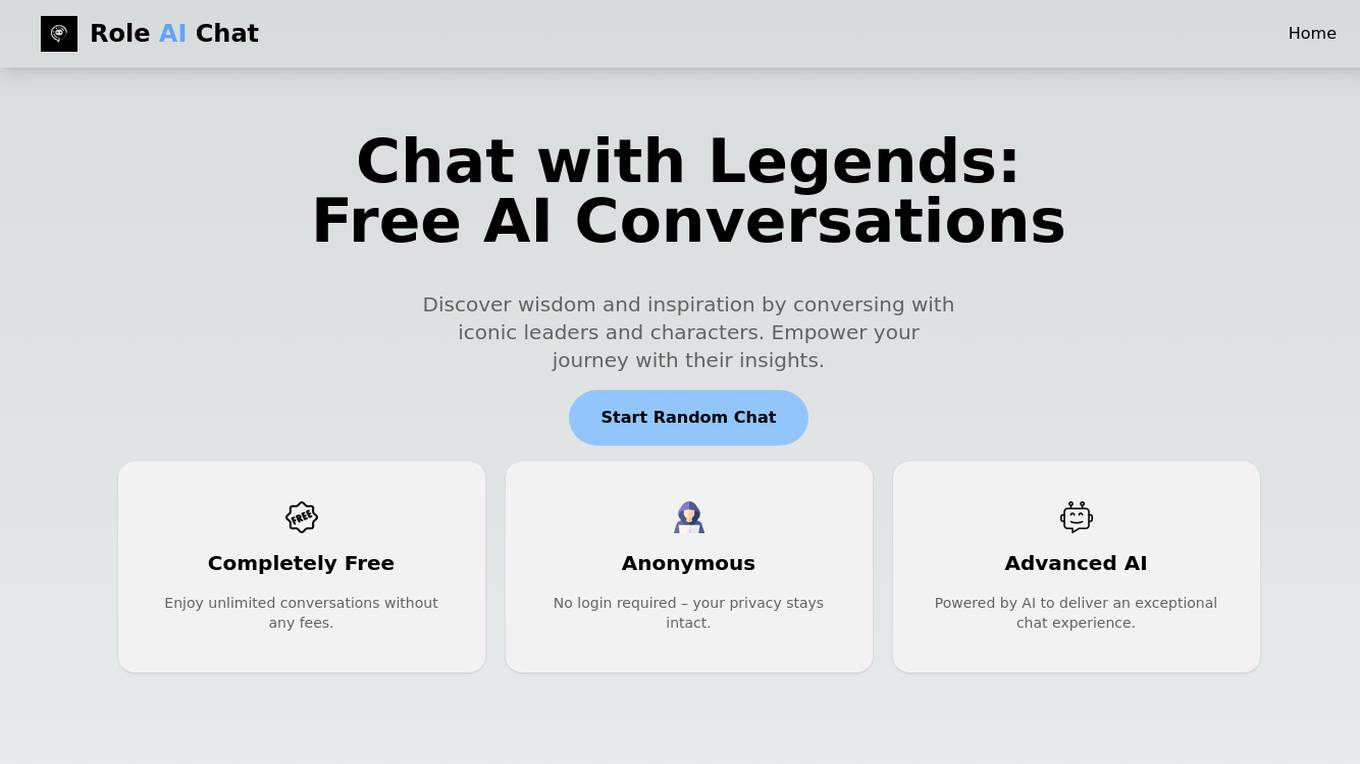
Role AI Chat
Role AI Chat is a free AI-powered chat experience that allows users to converse with iconic leaders and characters. With advanced AI technology, users can engage in unlimited conversations without any fees and without the need to log in, ensuring privacy. The platform features a diverse range of characters, including Bobby Axelrod from Billions, Charlie Munger, and Nassim Nicholas Taleb, each offering unique insights and wisdom based on their experiences and expertise.
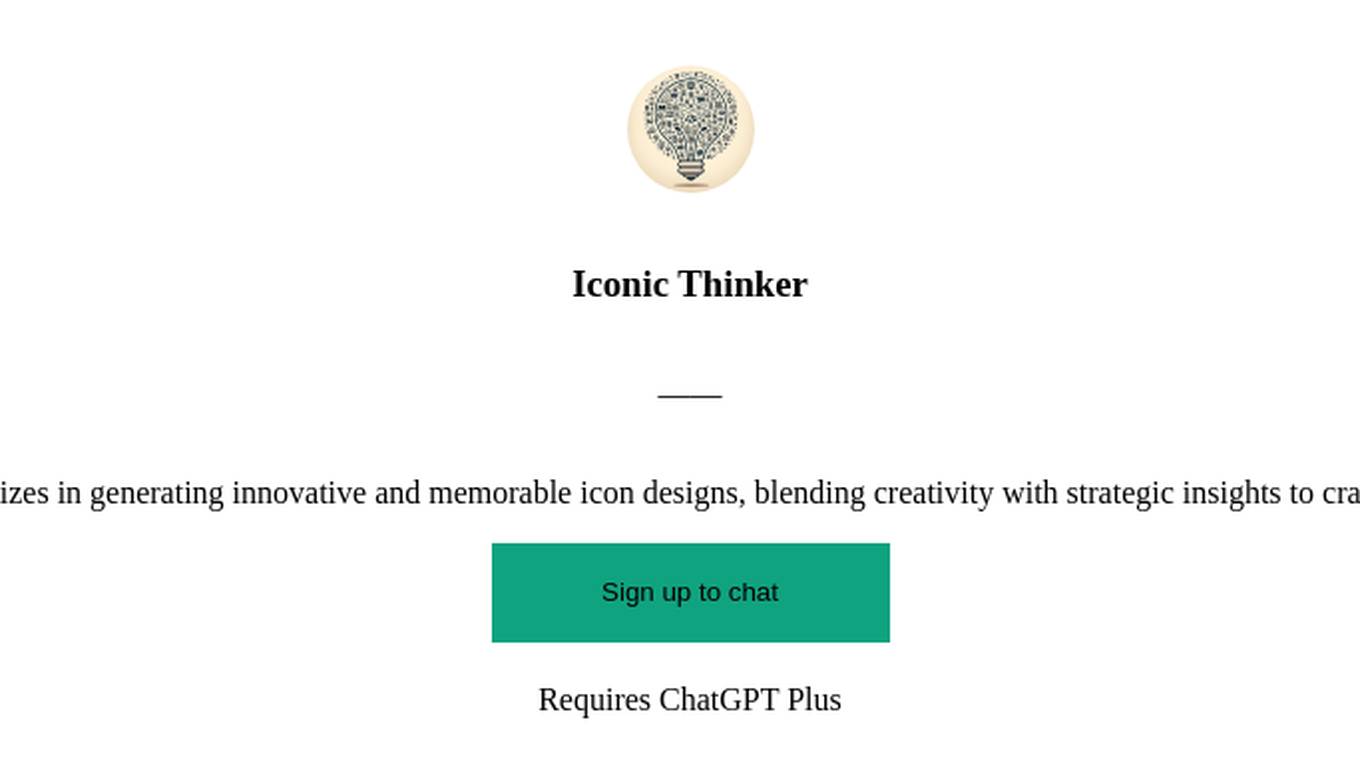
Iconic Thinker
Iconic Thinker specializes in generating innovative and memorable icon designs, blending creativity with strategic insights to craft visuals that stand out.
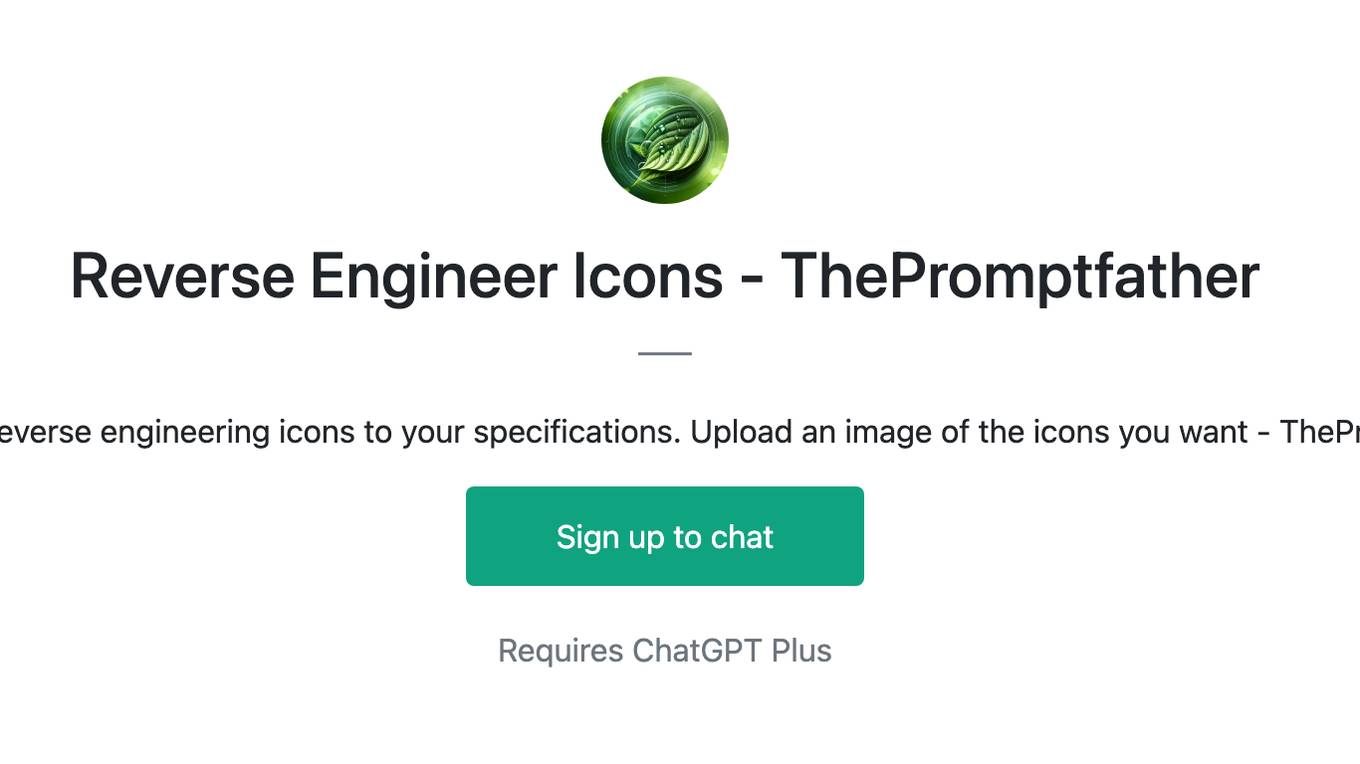
Reverse Engineer Icons - ThePromptfather
Specialist in reverse engineering icons to your specifications. Upload an image of the icons you want - ThePromptfather
lobe-icons
Lobe Icons is a collection of popular AI / LLM Model Brand SVG logos and icons. It features lightweight and scalable icons designed with highly optimized scalable vector graphics (SVG) for optimal performance. The collection is tree-shakable, allowing users to import only the icons they need to reduce the overall bundle size of their projects. Lobe Icons has an active community of designers and developers who can contribute and seek support on platforms like GitHub and Discord. The repository supports a wide range of brands across different models, providers, and applications, with more brands continuously being added through contributions. Users can easily install Lobe UI with the provided commands and integrate it with NextJS for server-side rendering. Local development can be done using Github Codespaces or by cloning the repository. Contributions are welcome, and users can contribute code by checking out the GitHub Issues. The project is MIT licensed and maintained by LobeHub.
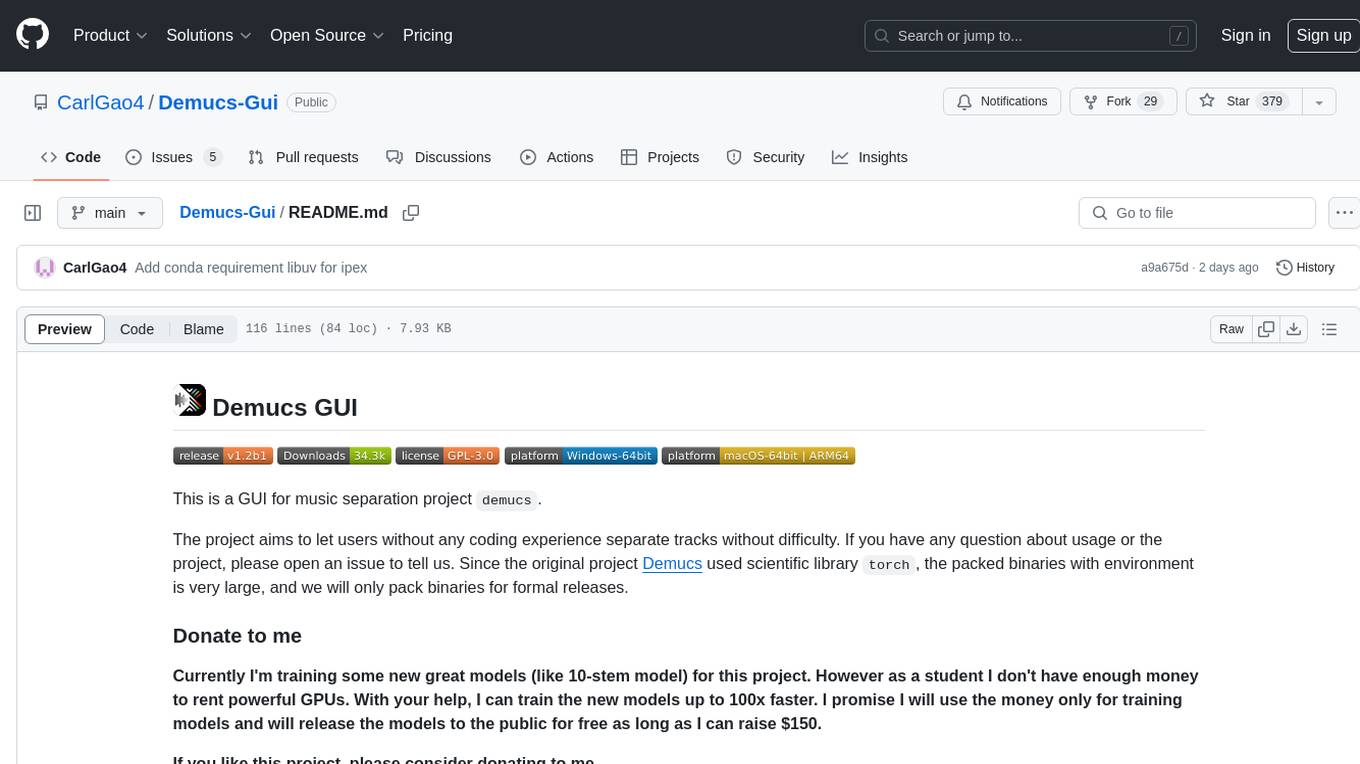
Demucs-Gui
Demucs GUI is a graphical user interface for the music separation project Demucs. It aims to allow users without coding experience to easily separate tracks. The tool provides a user-friendly interface for running the Demucs project, which originally used the scientific library torch. The GUI simplifies the process of separating tracks and provides support for different platforms such as Windows, macOS, and Linux. Users can donate to support the development of new models for the project, and the tool has specific system requirements including minimum system versions and hardware specifications.
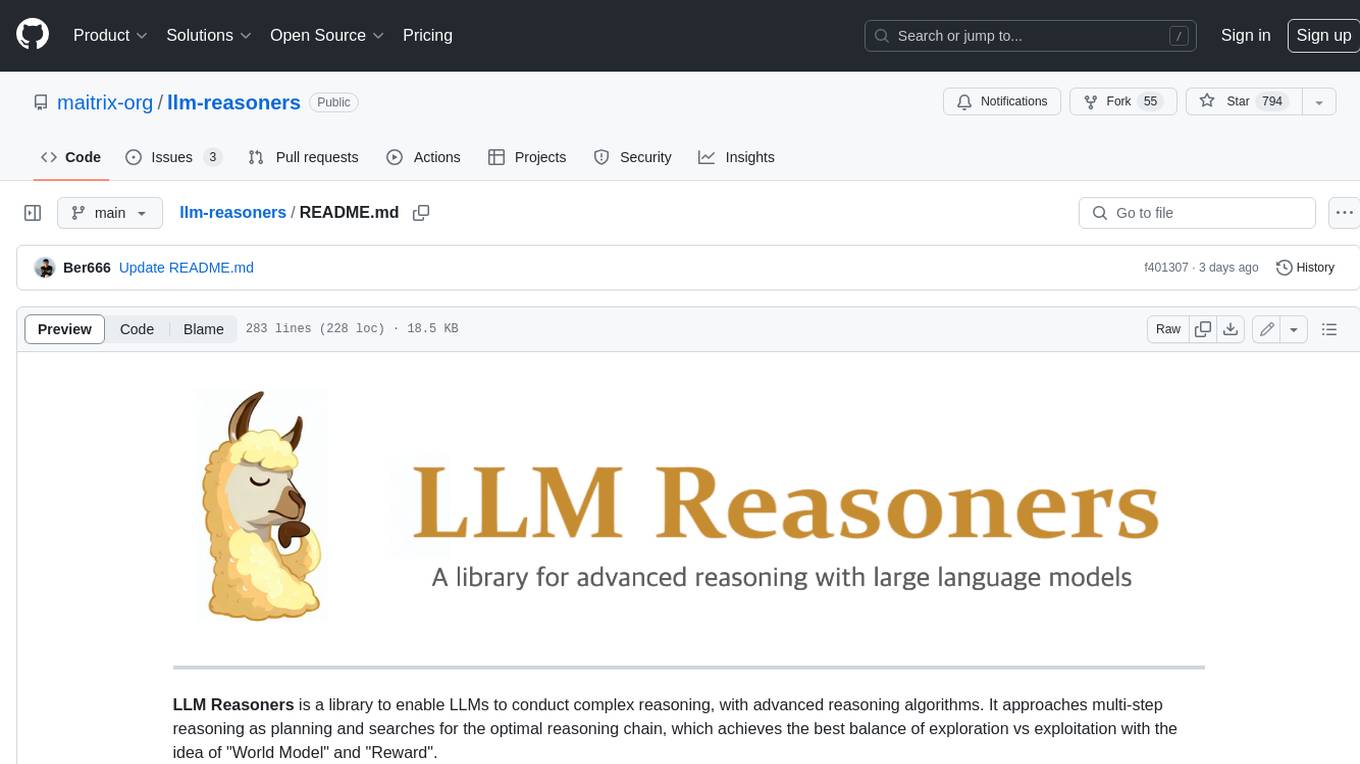
llm-reasoners
LLM Reasoners is a library that enables LLMs to conduct complex reasoning, with advanced reasoning algorithms. It approaches multi-step reasoning as planning and searches for the optimal reasoning chain, which achieves the best balance of exploration vs exploitation with the idea of "World Model" and "Reward". Given any reasoning problem, simply define the reward function and an optional world model (explained below), and let LLM reasoners take care of the rest, including Reasoning Algorithms, Visualization, LLM calling, and more!
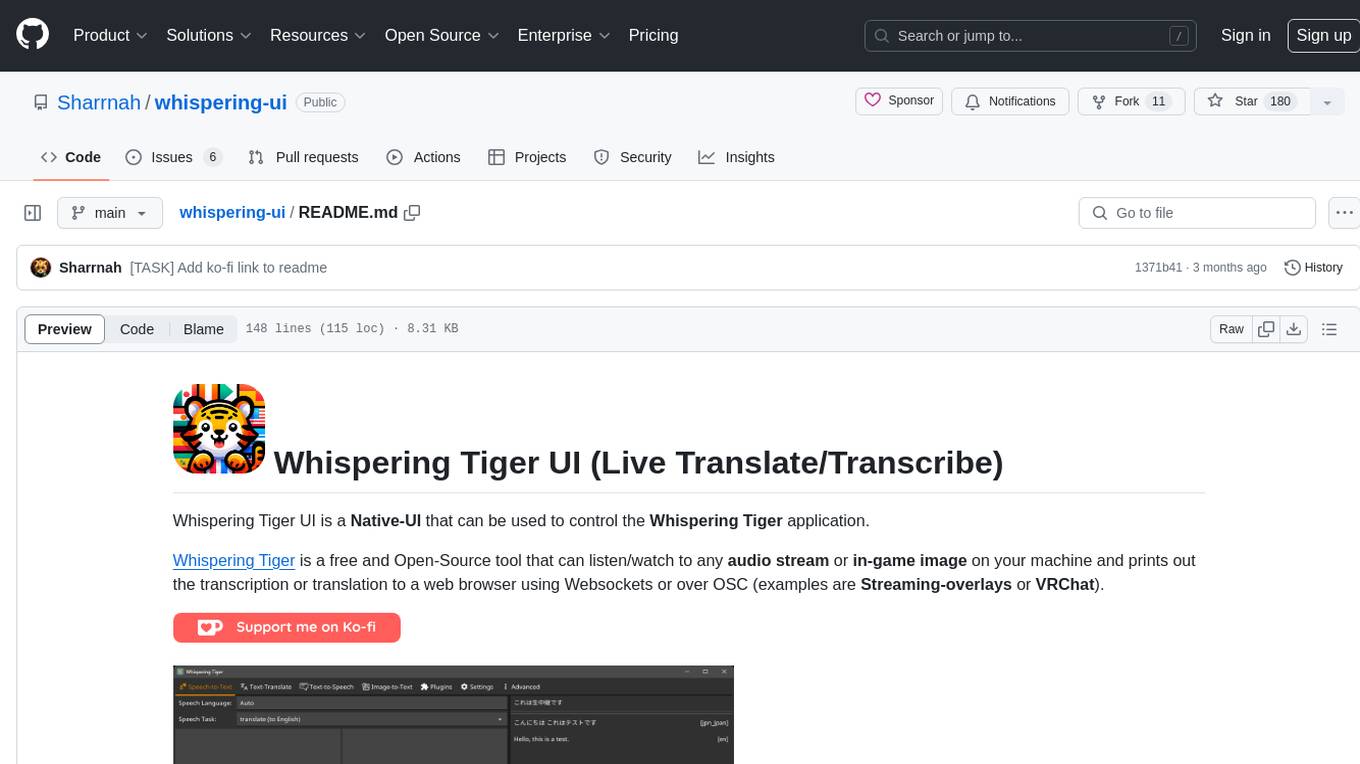
whispering-ui
Whispering Tiger UI is a Native-UI tool designed to control the Whispering Tiger application, a free and Open-Source tool that can listen/watch to audio streams or in-game images on your machine and provide transcription or translation to a web browser using Websockets or over OSC. It features a Native-UI for Windows, easy access to all Whispering Tiger features including transcription, translation, text-to-speech, and in-game image recognition. The tool supports loopback audio device, configuration saving/loading, plugin support for additional features, and auto-update functionality. Users can create profiles, configure audio devices, select A.I. devices for speech-to-text, and install/manage plugins for extended functionality.
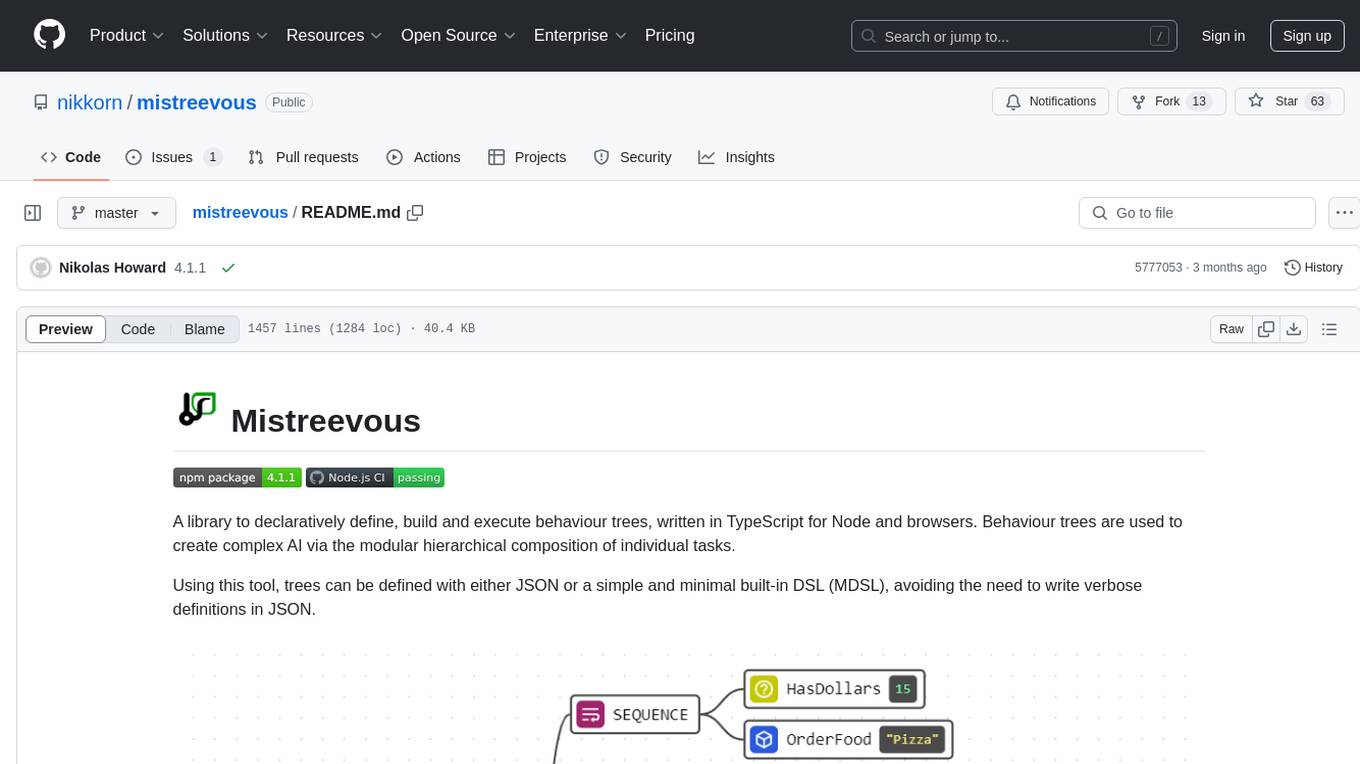
mistreevous
Mistreevous is a library written in TypeScript for Node and browsers, used to declaratively define, build, and execute behaviour trees for creating complex AI. It allows defining trees with JSON or a minimal DSL, providing in-browser editor and visualizer. The tool offers methods for tree state, stepping, resetting, and getting node details, along with various composite, decorator, leaf nodes, callbacks, guards, and global functions/subtrees. Version history includes updates for node types, callbacks, global functions, and TypeScript conversion.
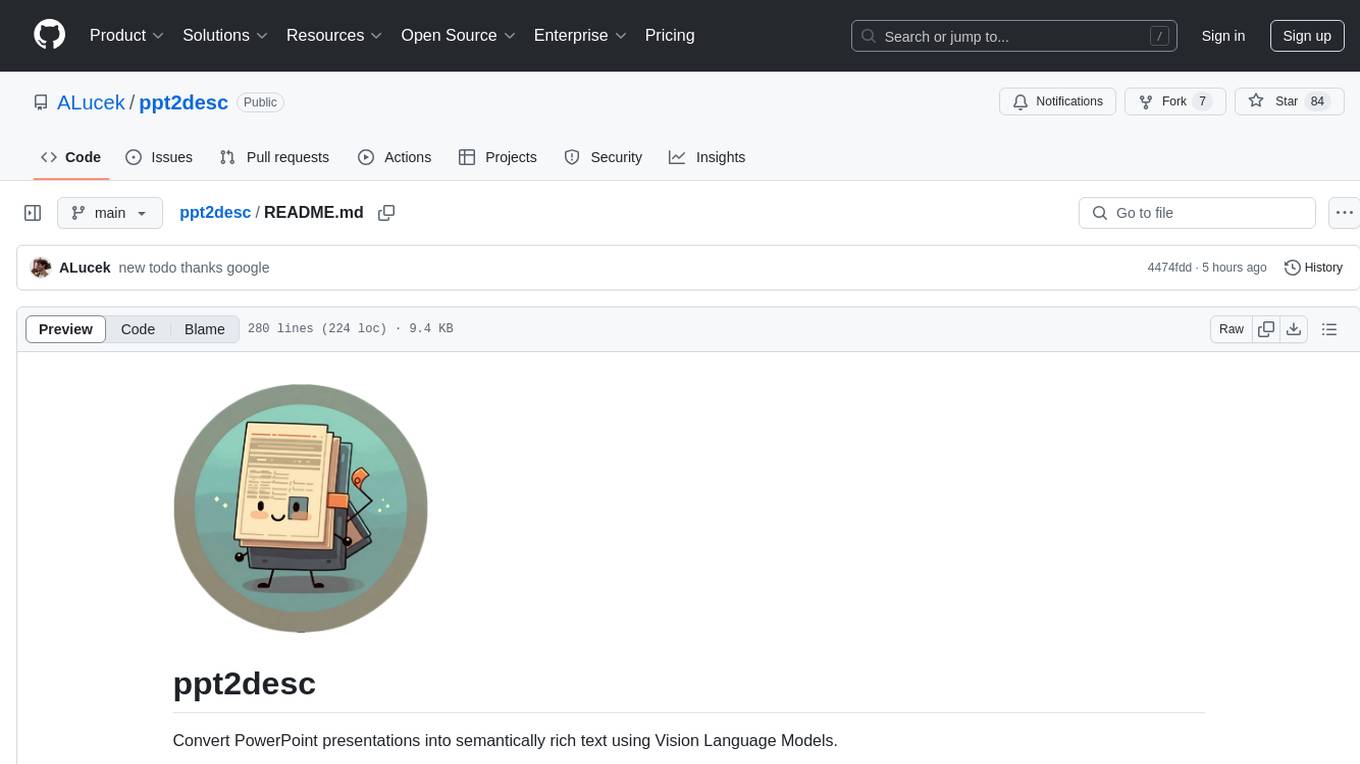
ppt2desc
ppt2desc is a command-line tool that converts PowerPoint presentations into detailed textual descriptions using vision language models. It interprets and describes visual elements, capturing the full semantic meaning of each slide in a machine-readable format. The tool supports various model providers and offers features like converting PPT/PPTX files to semantic descriptions, processing individual files or directories, visual elements interpretation, rate limiting for API calls, customizable prompts, and JSON output format for easy integration.
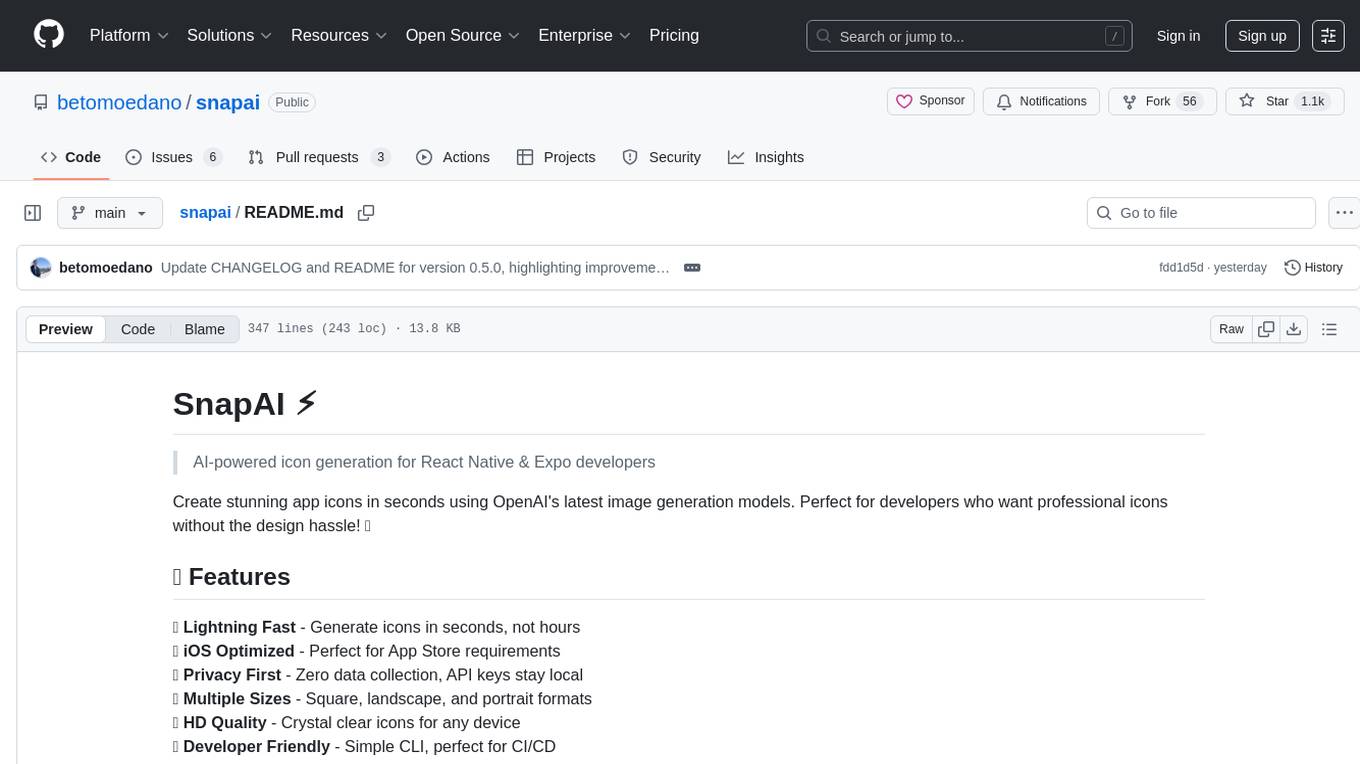
snapai
SnapAI is a tool that leverages AI-powered image generation models to create professional app icons for React Native & Expo developers. It offers lightning-fast icon generation, iOS optimized icons, privacy-first approach with local API key storage, multiple sizes and HD quality icons. The tool is developer-friendly with a simple CLI for easy integration into CI/CD pipelines.
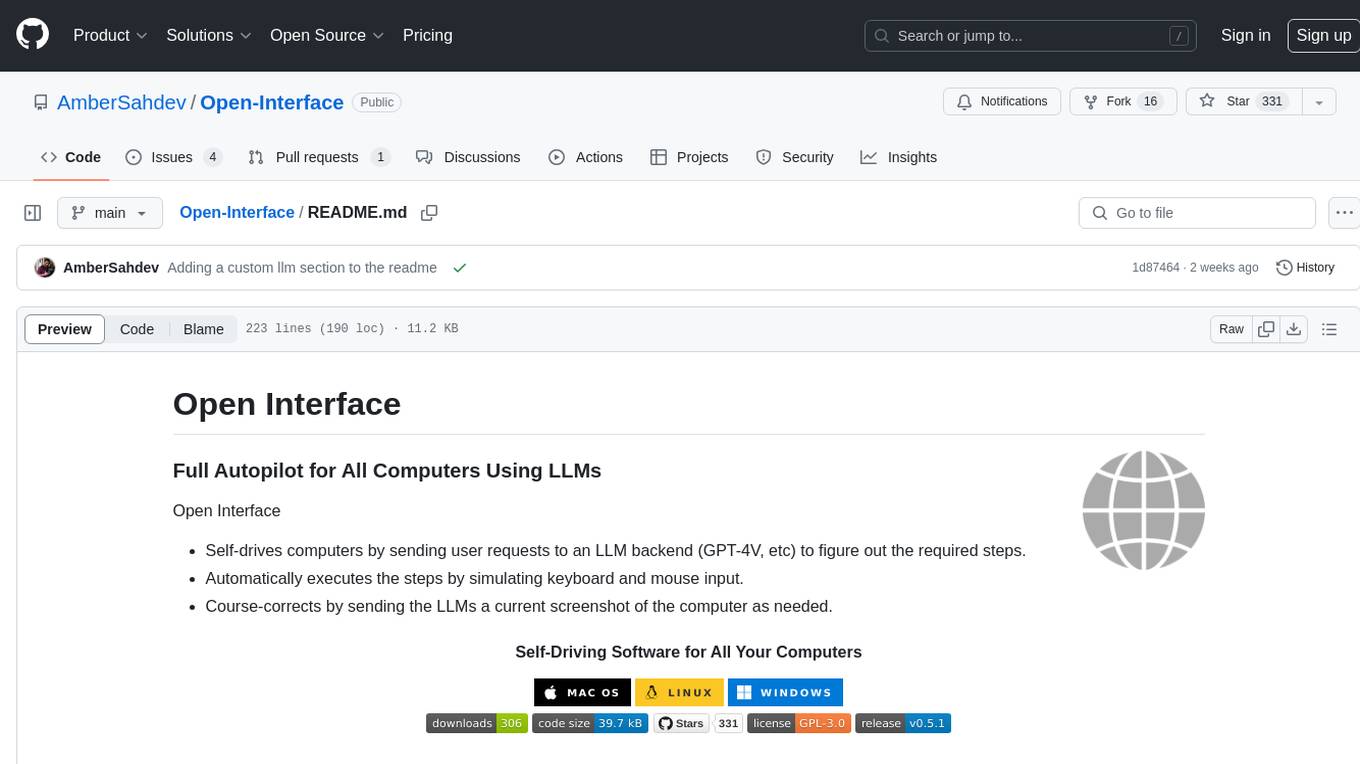
Open-Interface
Open Interface is a self-driving software that automates computer tasks by sending user requests to a language model backend (e.g., GPT-4V) and simulating keyboard and mouse inputs to execute the steps. It course-corrects by sending current screenshots to the language models. The tool supports MacOS, Linux, and Windows, and requires setting up the OpenAI API key for access to GPT-4V. It can automate tasks like creating meal plans, setting up custom language model backends, and more. Open Interface is currently not efficient in accurate spatial reasoning, tracking itself in tabular contexts, and navigating complex GUI-rich applications. Future improvements aim to enhance the tool's capabilities with better models trained on video walkthroughs. The tool is cost-effective, with user requests priced between $0.05 - $0.20, and offers features like interrupting the app and primary display visibility in multi-monitor setups.
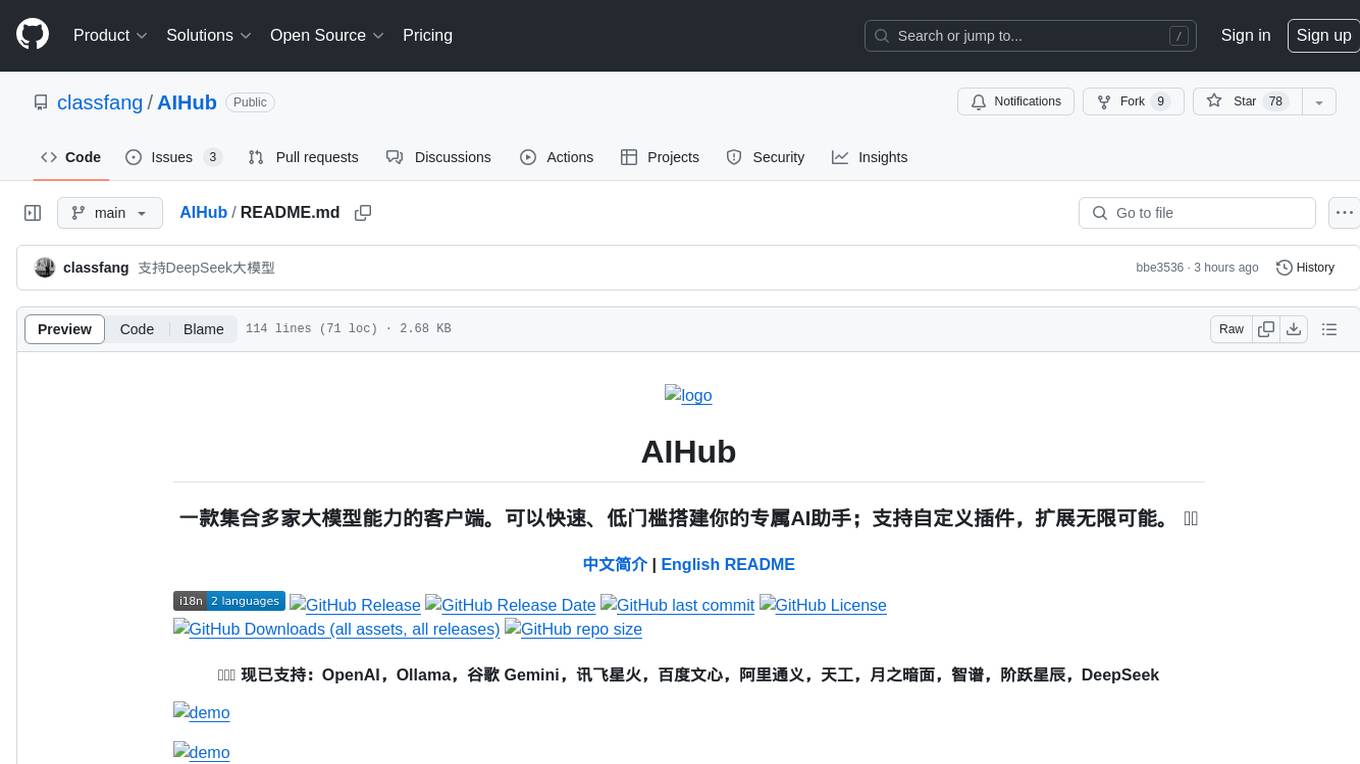
AIHub
AIHub is a client that integrates the capabilities of multiple large models, allowing users to quickly and easily build their own personalized AI assistants. It supports custom plugins for endless possibilities. The tool provides powerful AI capabilities, rich configuration options, customization of AI assistants for text and image conversations, AI drawing, installation of custom plugins, personal knowledge base building, AI calendar generation, support for AI mini programs, and ongoing development of additional features. Users can download the application package from the release section, resolve issues related to macOS app installation, and contribute ideas by submitting issues. The project development involves installation, development, and building processes for different operating systems.
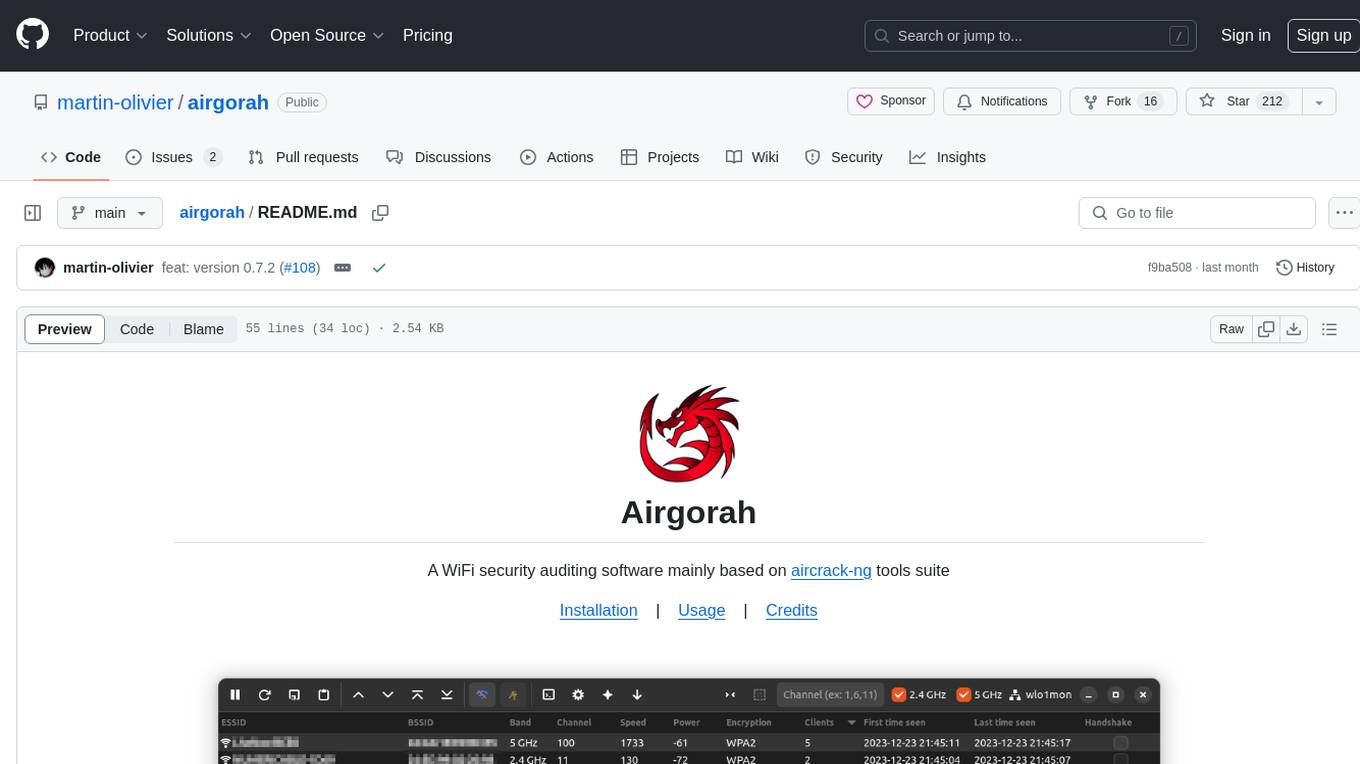
airgorah
Airgorah is a WiFi security auditing software written in Rust that utilizes the aircrack-ng tools suite. It allows users to capture WiFi traffic, discover connected clients, perform deauthentication attacks, capture handshakes, and crack access point passwords. The software is designed for testing and discovering flaws in networks owned by the user, and requires root privileges to run on Linux systems with a wireless network card supporting monitor mode and packet injection. Airgorah is not responsible for any illegal activities conducted with the software.
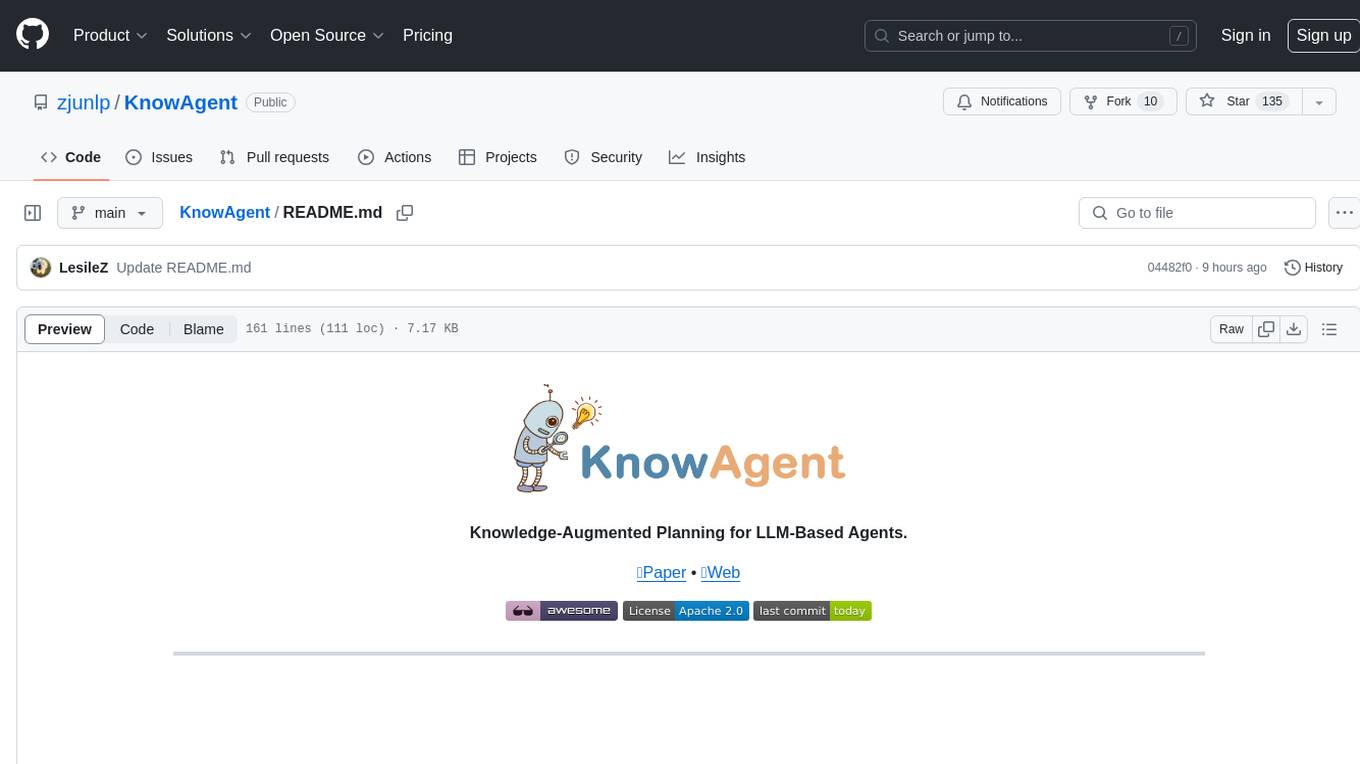
KnowAgent
KnowAgent is a tool designed for Knowledge-Augmented Planning for LLM-Based Agents. It involves creating an action knowledge base, converting action knowledge into text for model understanding, and a knowledgeable self-learning phase to continually improve the model's planning abilities. The tool aims to enhance agents' potential for application in complex situations by leveraging external reservoirs of information and iterative processes.
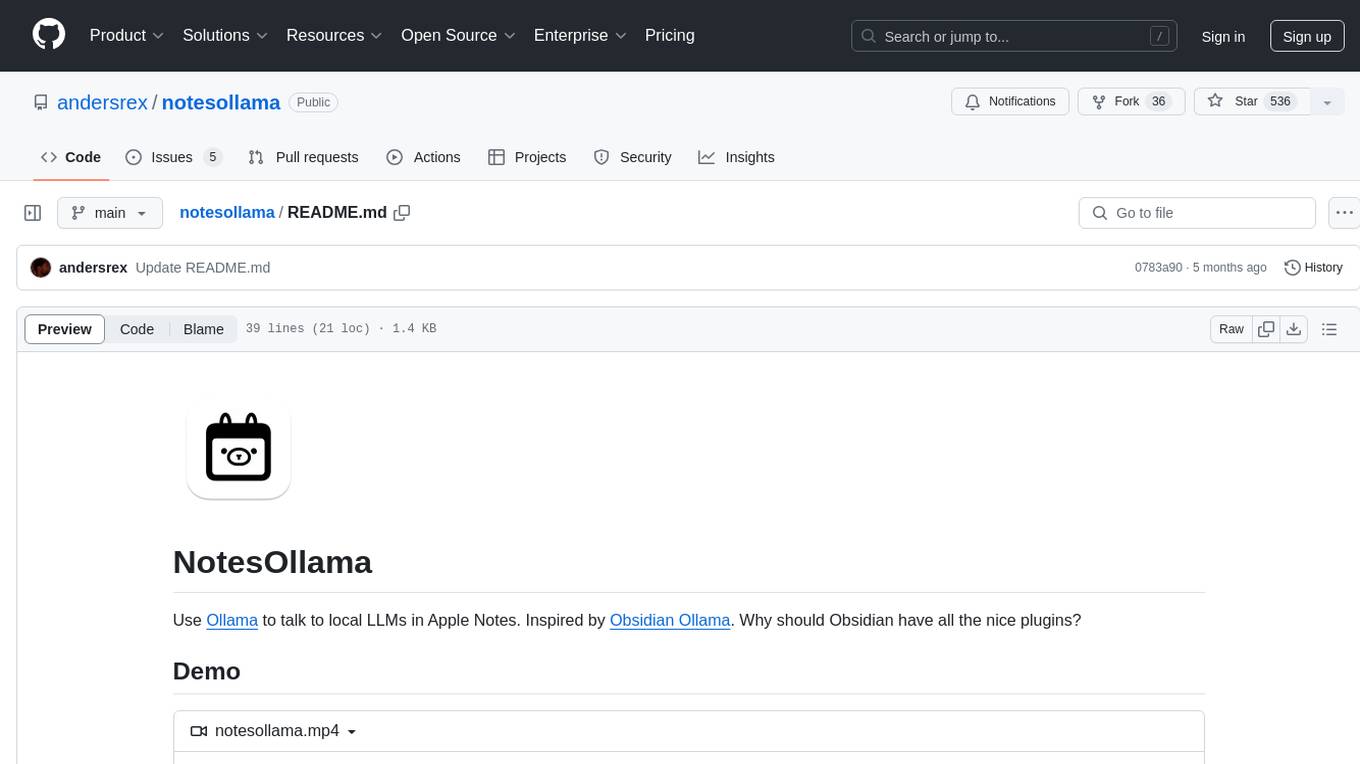
notesollama
NotesOllama is a tool that allows users to communicate with local LLMs in Apple Notes. It is built using SwiftUI for the user interface, AXSwift to access Notes through macOS's accessibility API, and OllamaKit to interface with Ollama. Users can customize prompts by editing the commands.json file. The tool assumes Ollama is running on the default macOS port. Support the development by checking out the plugin NotesCmdr. Licensed under MIT License by Anders Rex in 2024.
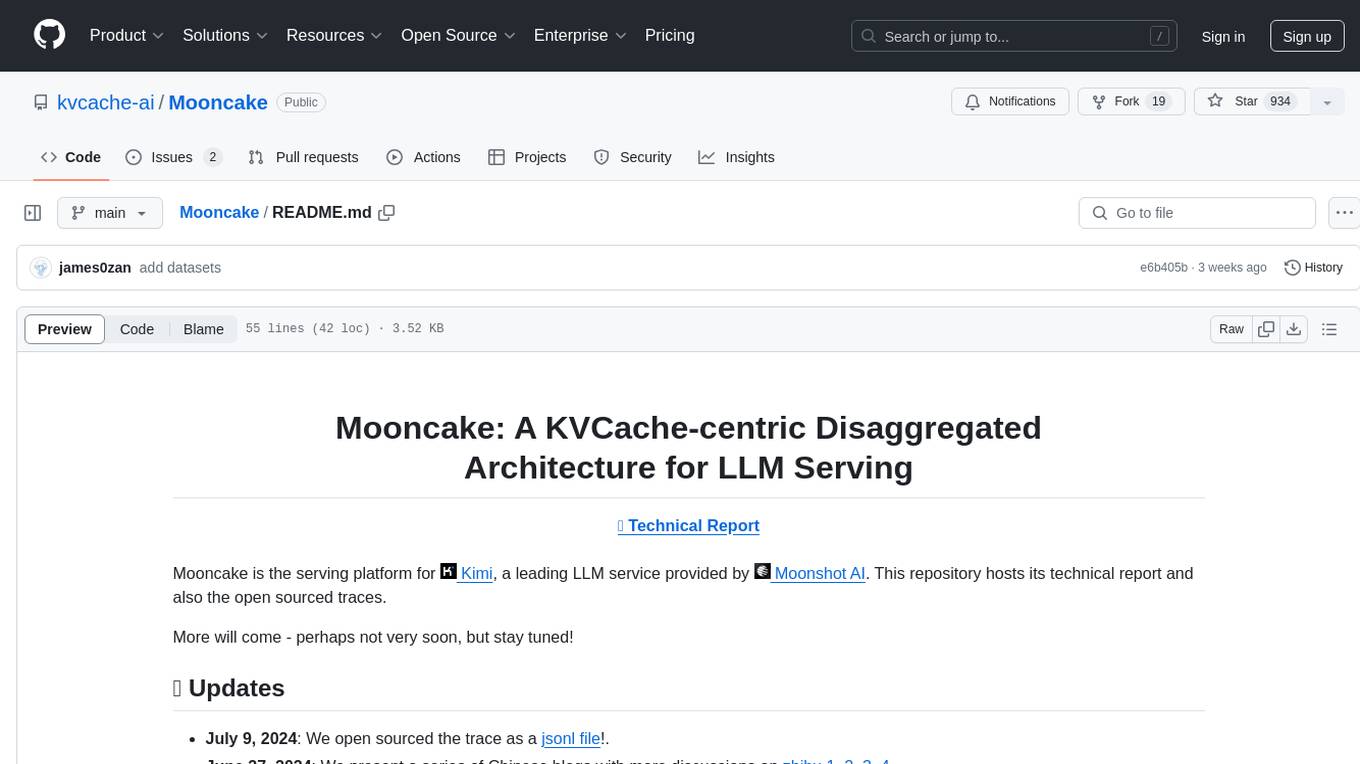
Mooncake
Mooncake is a serving platform for Kimi, a leading LLM service provided by Moonshot AI. It features a KVCache-centric disaggregated architecture that separates prefill and decoding clusters, leveraging underutilized CPU, DRAM, and SSD resources of the GPU cluster. Mooncake's scheduler balances throughput and latency-related SLOs, with a prediction-based early rejection policy for highly overloaded scenarios. It excels in long-context scenarios, achieving up to a 525% increase in throughput while handling 75% more requests under real workloads.
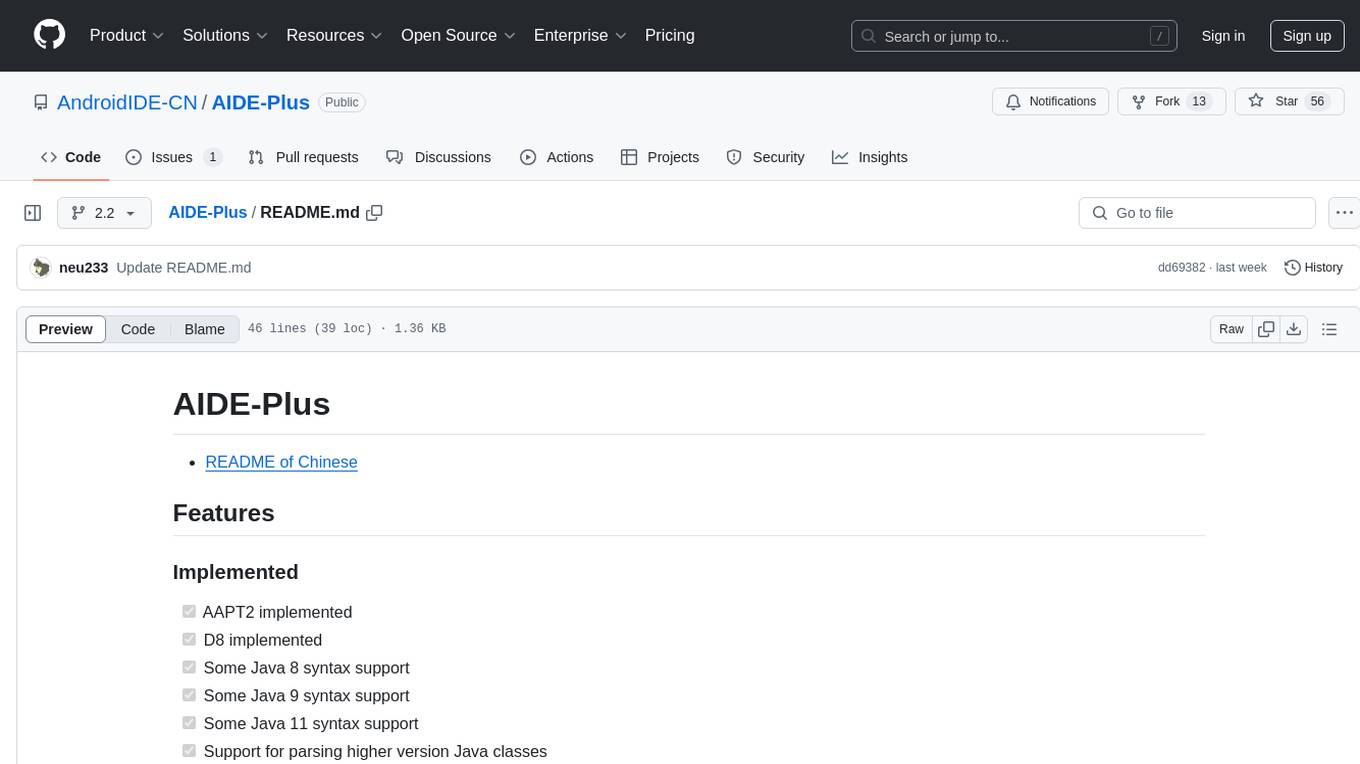
AIDE-Plus
AIDE-Plus is a comprehensive tool for Android app development, offering support for various Java syntax versions, Gradle and Maven build systems, ProGuard, AndroidX, CMake builds, APK/AAB generation, code coloring customization, data binding, and APK signing. It also provides features like AAPT2, D8, runtimeOnly, compileOnly, libgdxNatives, manifest merging, Shizuku installation support, and syntax auto-completion. The tool aims to streamline the development process and enhance the user experience by addressing common issues and providing advanced functionalities.
